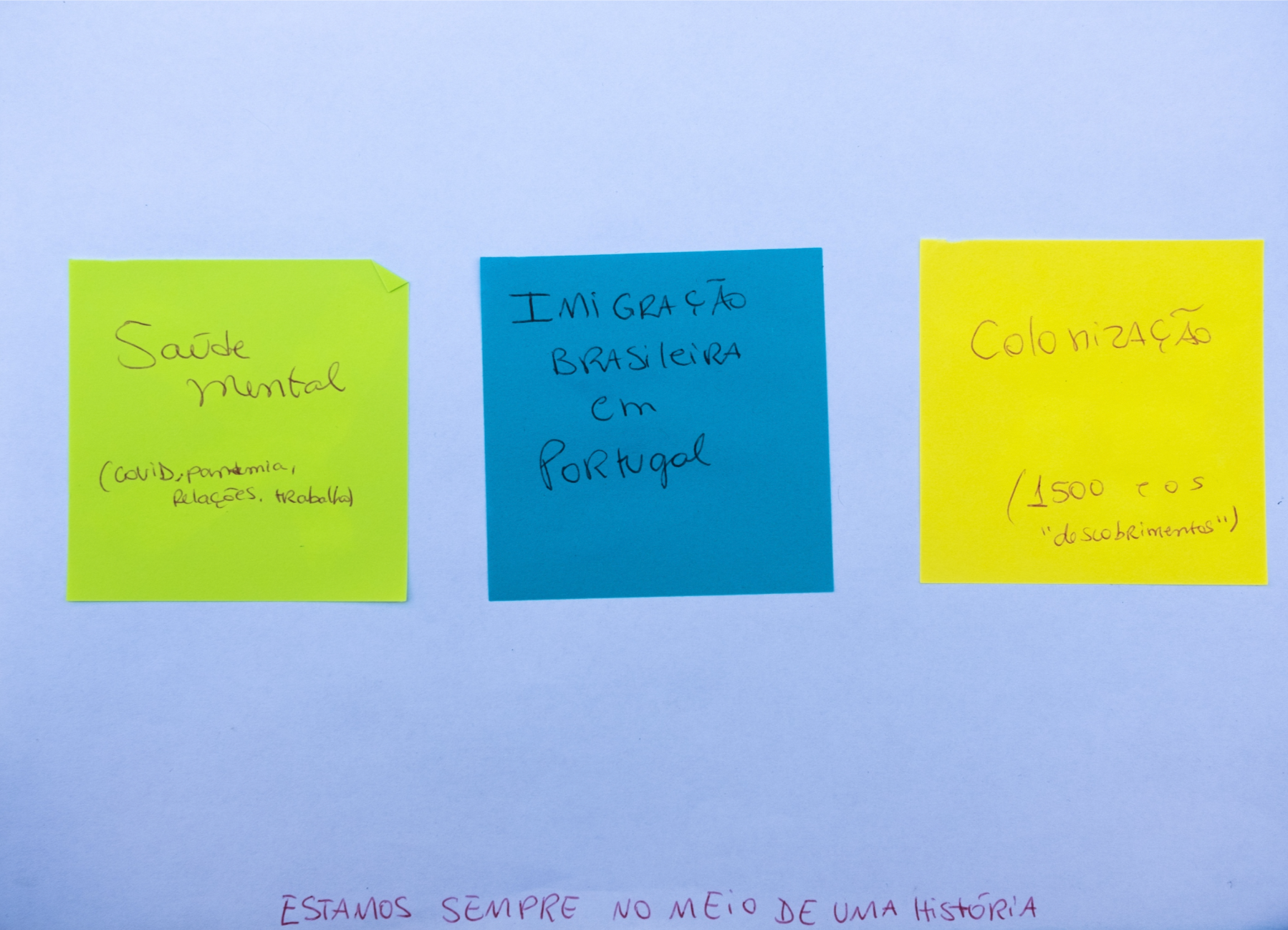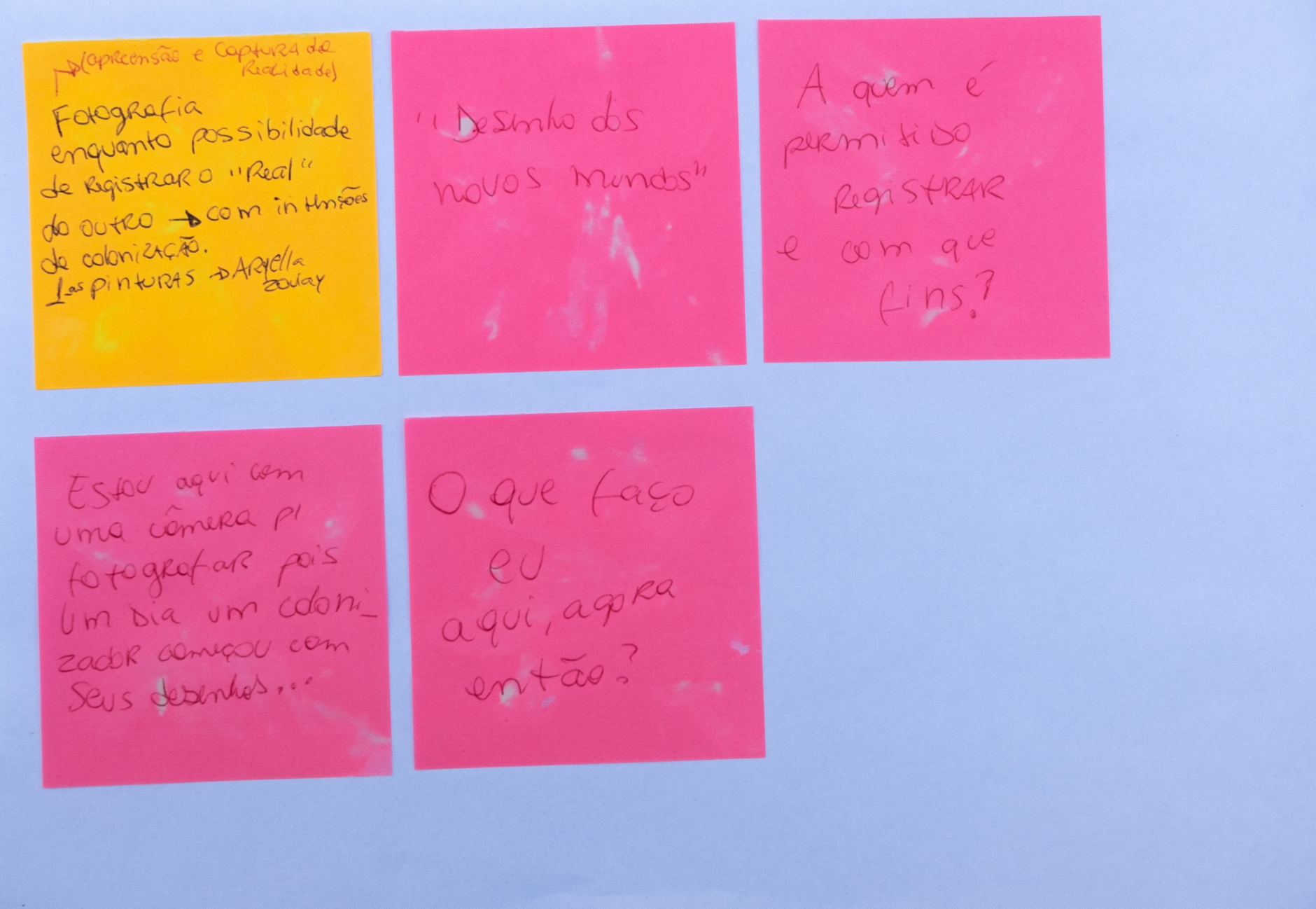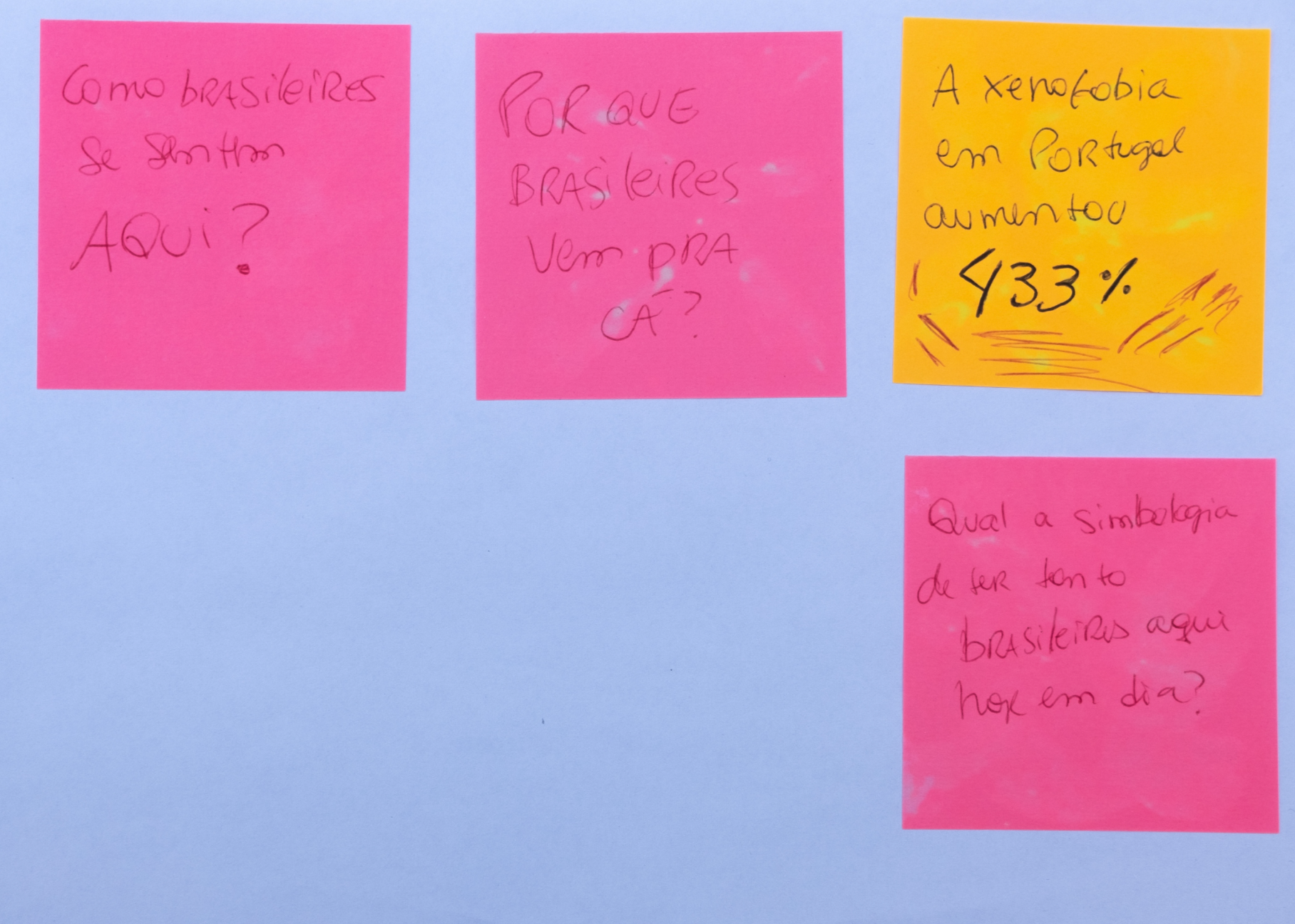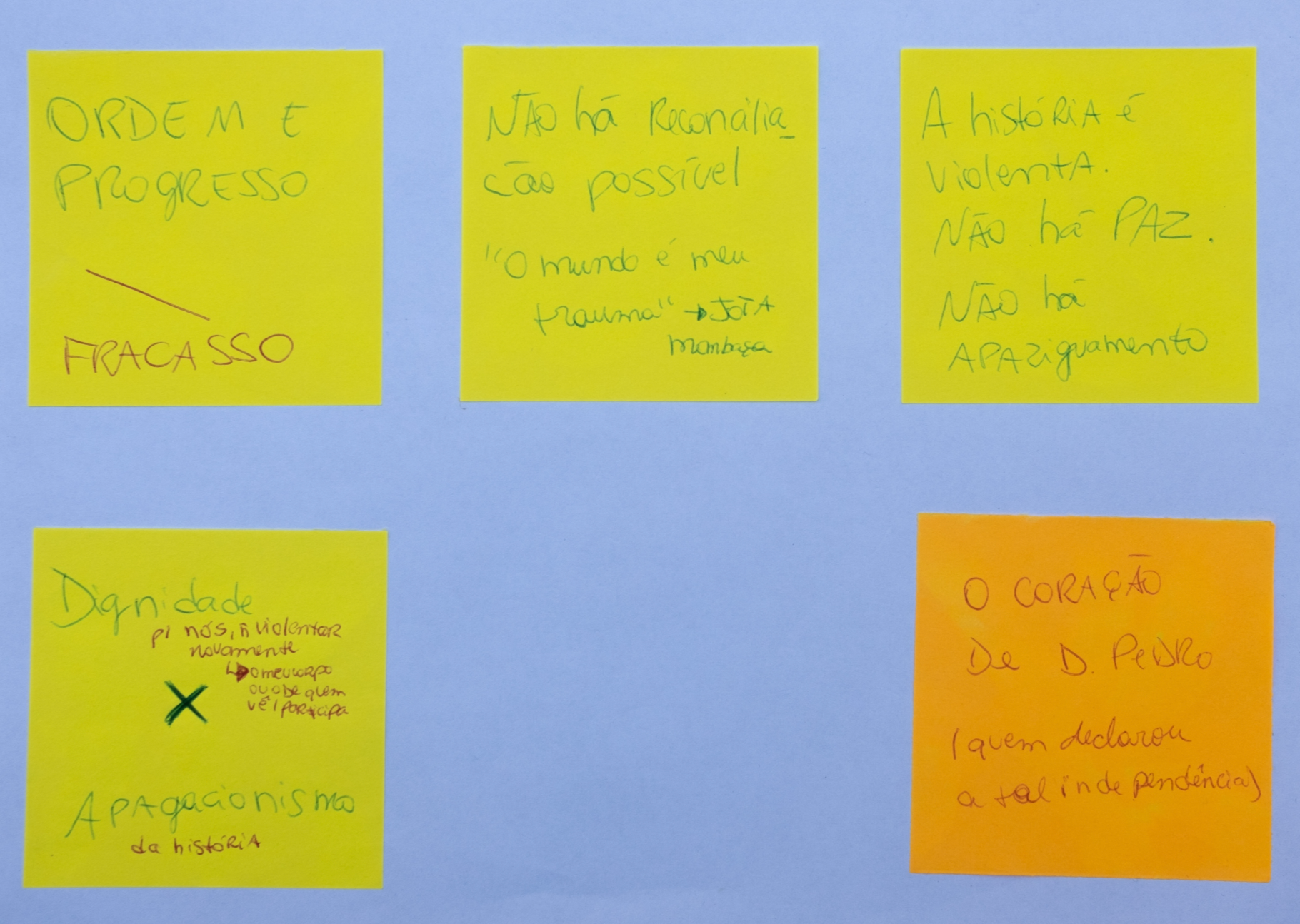Trabalho desenvolvido durante residência artística realizada entre março e junho de 2022 na cidade do Porto, em Portugal.
Artista selecionada em uma convocatória aberta do MIRA e Fundação Gulbenkian.
Work developed during an artist residency held between March and June 2022 in the city of Porto, Portugal.
Artist selected in an open call by MIRA and Gulbenkian Foundation.
Artist selected in an open call by MIRA and Gulbenkian Foundation.
“Ser imigrante é viver o tempo inteiro de saudades de metades que não se encaixam de faltas, ausências que não tem forma” (D.)
“Falta cor e não nos querem aqui colorir a cidade” (T.)
“Quantas memórias cabem num rio?” (I.)
“É possível criar imagens sutis de fatos brutos e violentos? (H.)
"To be an immigrant is to live all the time of longing for halves that don't fit together of lacks, absences that have no form" (D.)
"We lack color and we are not wanted here to color the city" (T.)
"How many memories fit in a river?" (I.)
"Is it possible to create subtle images of brutal and violent facts?" (H.)
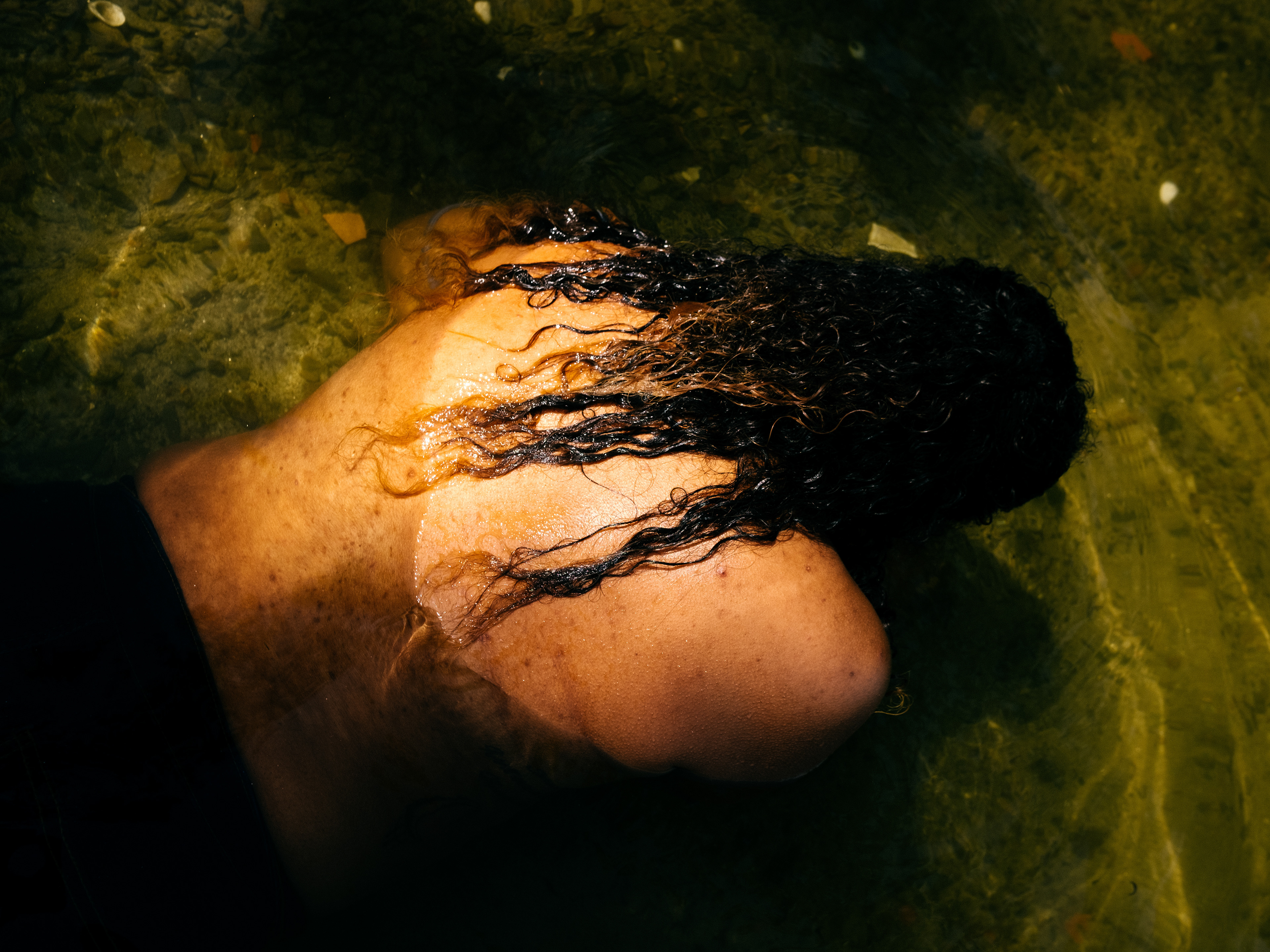
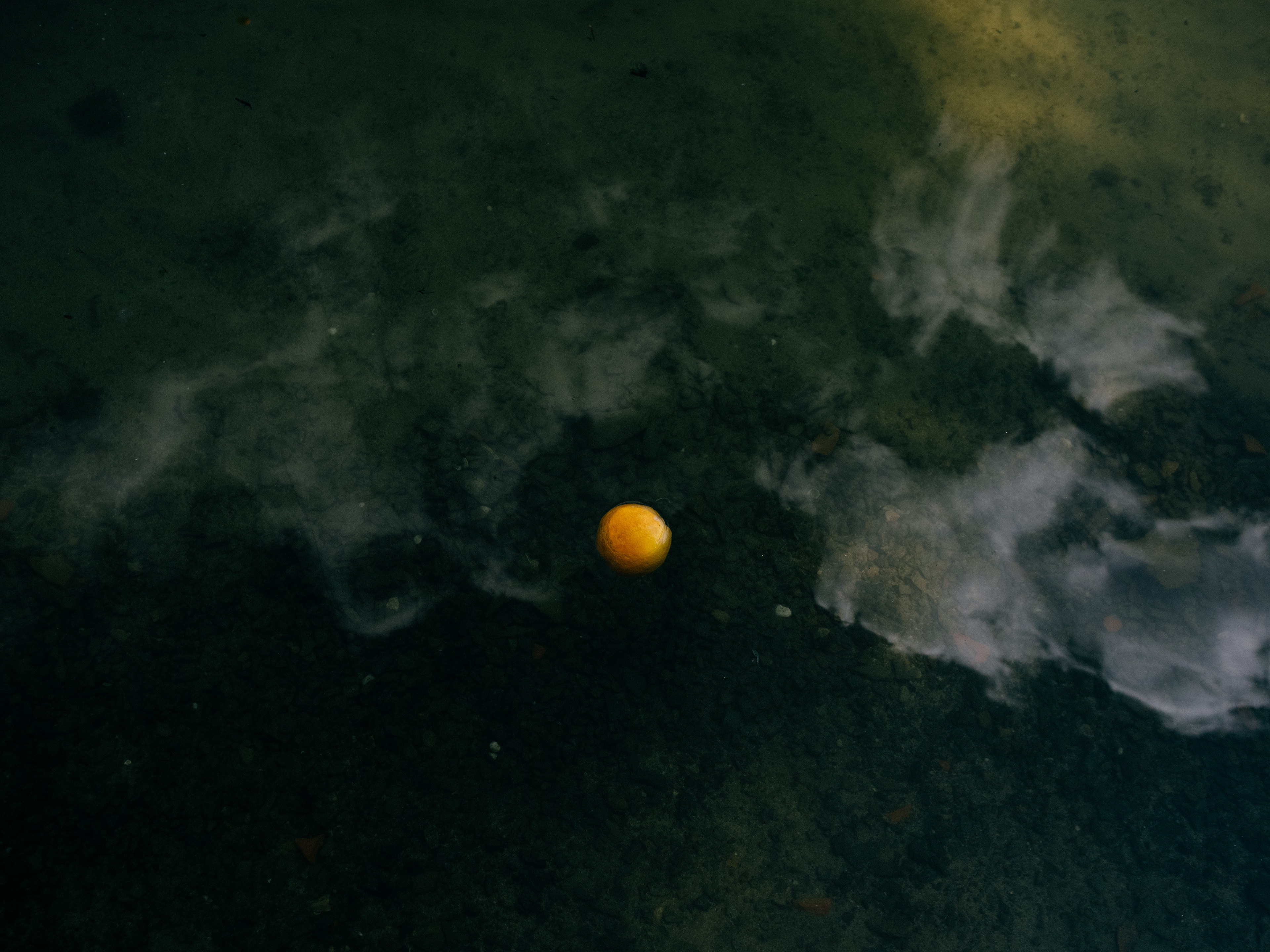
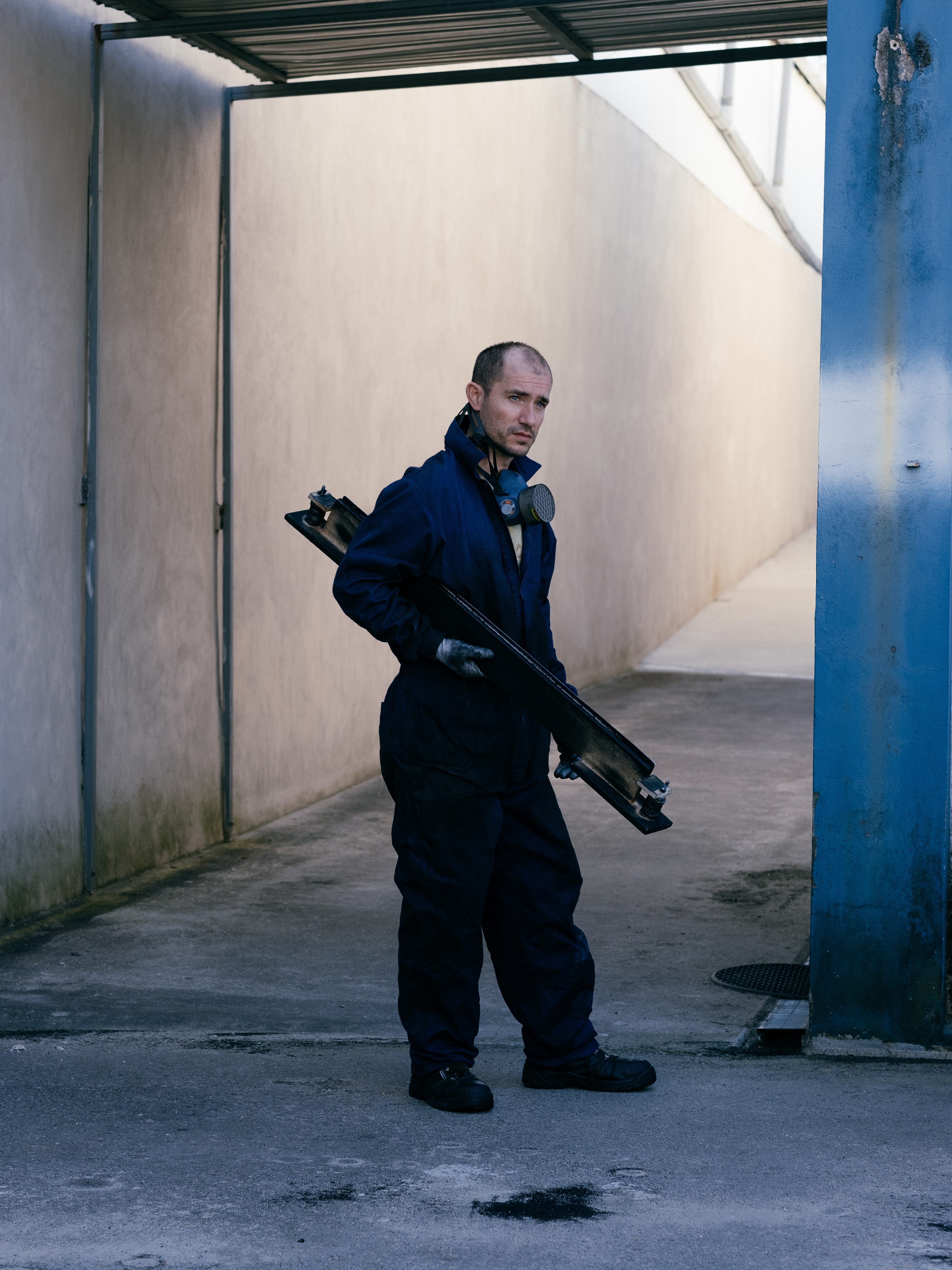
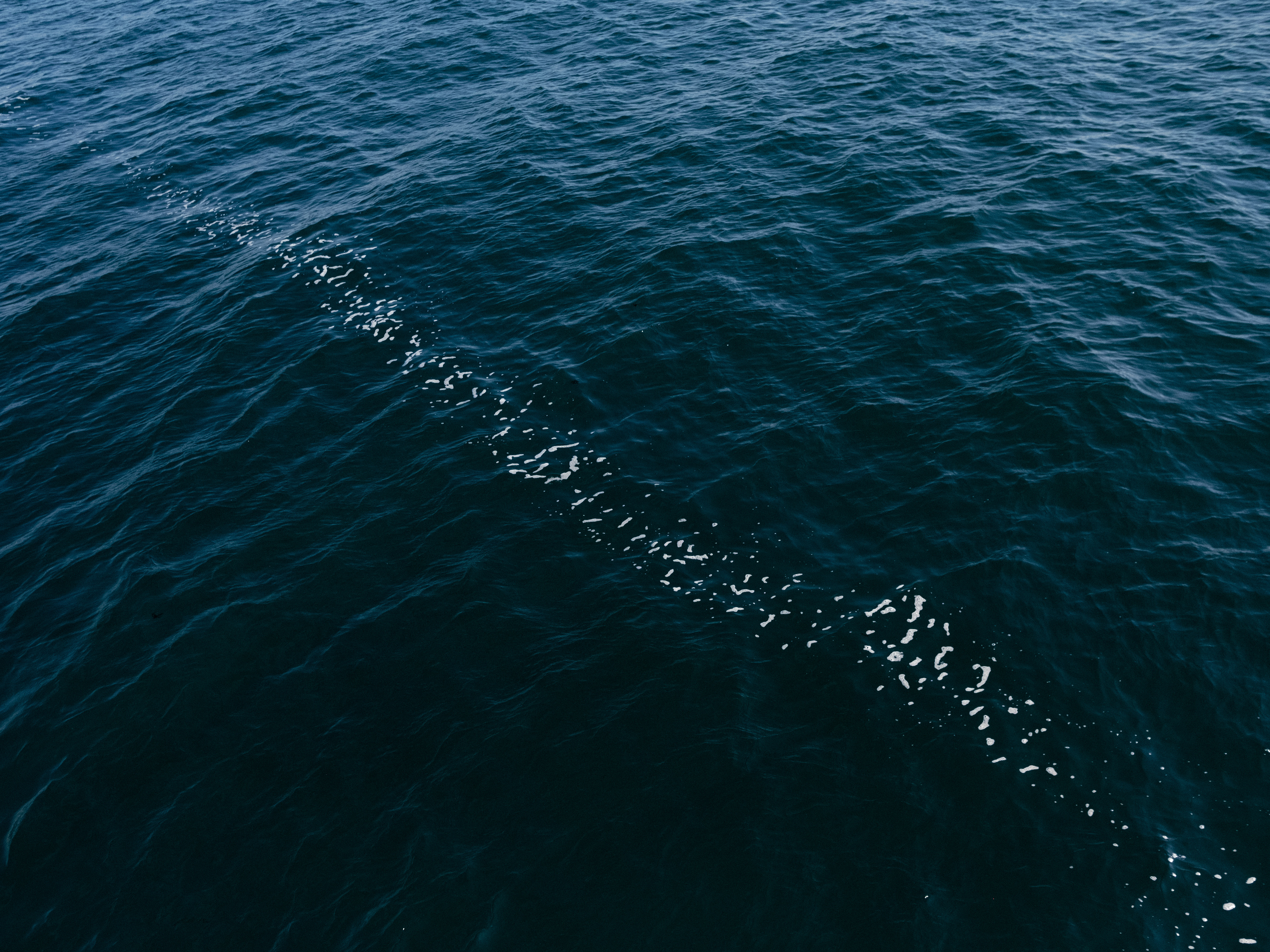
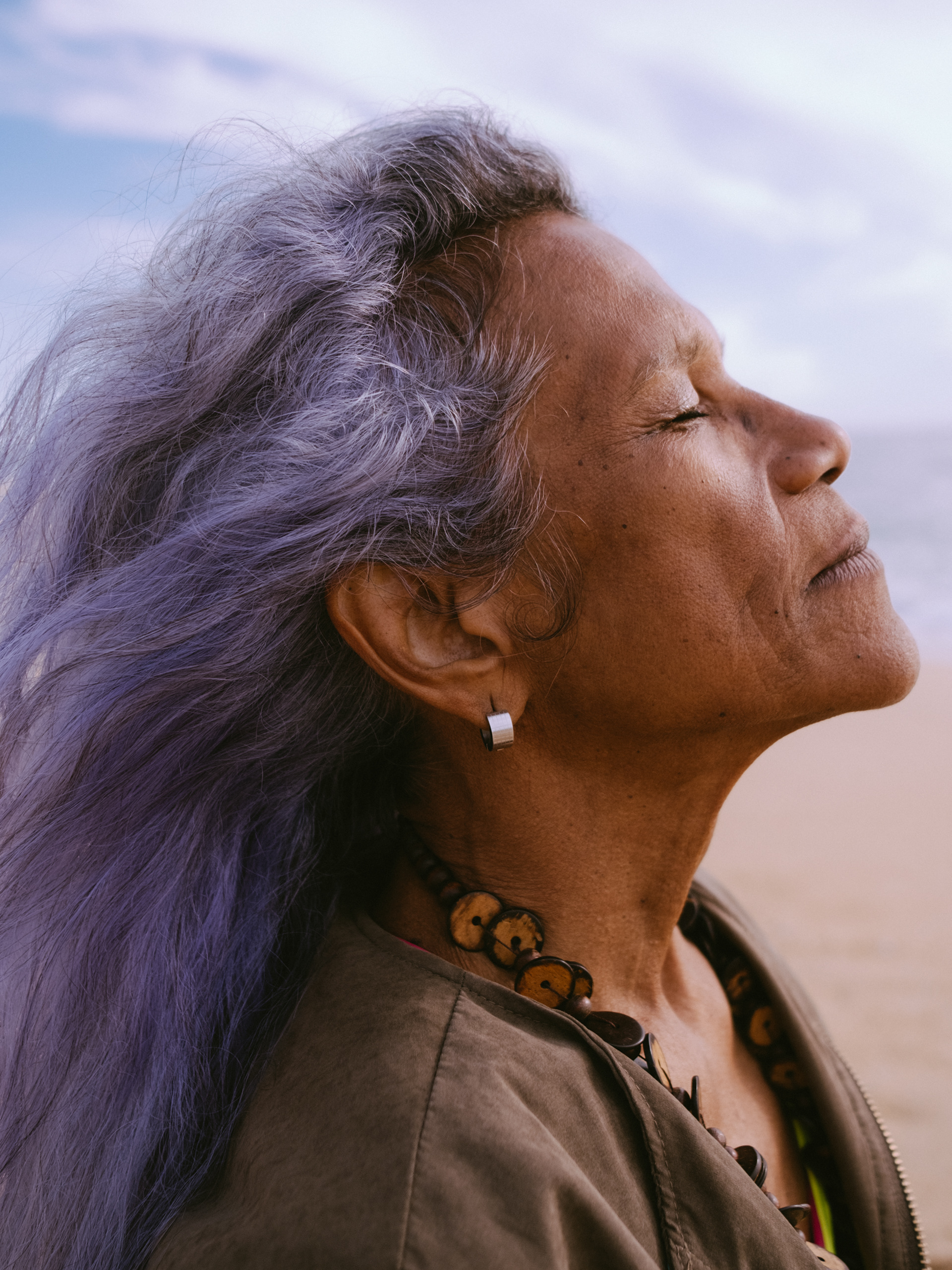
texto de apresentação
A busca afogada da morada carrega um corpo monumento com traumas e memória. Reviver a saúde do corpo presente no ser carrega um estranhamento do encontro com o passado ancestral.
...
Pensar questões dentro do que entendemos como saúde mental de forma consciente é algo que me atravessa há 10 anos, desde que fui convocada a olhar para minha mãe com minha fotografia. Desde então, no meu trabalho, venho observando indivíduos e suas particularidades para falar sobre sensações que nomeamos como loucura. Quando me inscrevi para essa residência em Portugal, uma parceria da Galeria MIRA com a Fundação Gulbenkian, tive interesse em trabalhar junto do Hospital Conde de Ferreira, o primeiro hospital psiquiátrico do Porto. A pandemia chegou e junto dela a necessidade de mudar o foco da pesquisa; veio então a nova sugestão do pensar sobre imigração brasileira e relações com saúde mental.
Quando chego, em 26 de março, começo a experienciar a cidade e ouvir relatos diversos das vivências de imigrantes brasileiros por aqui, percebo como as vivências individuais reverberam no coletivo, além disso: como elas se conectam em forma e semelhança. Sinto a necessidade de dar um passo para trás para poder visualizar as raízes de onde os atravessamentos que hoje se expressam por meio de sintomas psicológicos se iniciam.
A relação entre Brasil e Portugal não é neutra. Existe uma história de invasões, roubo e criação de imaginários sociais-coletivos. O tempo não dá conta de apagar o passado. Pensar como vivem brasileires em Portugal hoje é ser atravessada, antes de tudo, por essa raiz. E começar olhando para ela é uma possibilidade honesta de reconhecer o caminho para quem sabe começar a entender o presente.
...
Traçar um imaginário psicológico dessa imigração passa pelas feridas abertas; que se mostram tanto na individualidade como nos espaços públicos, nos monumentos cristalizados e nas sensações coletivas compartilhadas.
Como sente uma corpa colonizada quando se encontra com um monumento em homenagem ao esforço colonizador daqueles que invadiram suas terras?
...
Falar sobre os indivíduos e suas experiências sem considerar o contexto a que estão inseridos é pular uma parte importante dessa história. O meu trabalho, se tratando de uma pesquisa artística viva, teve deslocamentos de forma de ver e produzir durante esse tempo em Portugal. Percebo que além das fotografias, também necessito das imagens criadas pela força das palavras organizadas em texto. Propor uma residência a quilômetros de distância, sem conhecer o território, é propor um ponto de partida a ser explorado a depender de como o espaço e as corpas interagem no presente.
Portanto,
prefácio do presente se torna um grito
um grito ao presente encontrado
um grito do meu corpo presente e aberto
num lugar desconhecido
para sentir o que a cidade me convoca a falar.
Se “muitas pessoas” nos últimos anos falam sobre monumentos e colonização, o que tem por trás disso? O que se faz com o que se escuta? Como a memória desse passado vem sendo elaborada? Como isso interfere na saúde de imigrantes brasileiros e de outras colônias aqui? Pra tentar começar a responder essas perguntas, eu precisaria de muito mais do que 3 meses. No momento, colaboro com a escavação já iniciada por outros artistas, para que a ferida se mantenha aberta e olhada desde sua raiz, por mais repetitivo que isso seja. “Falaremos até que não seja mais preciso falar”. Saúde mental é política. Saúde mental é coletiva e social.
...
Agradeço as minhas guias espirituais pelos caminhos abertos nesta terra do norte, saúdo as minhas avós que me acompanharam nessa jornada. Vibro os encontros com Betina, Orlando, Taís, Djalma, Thiara, Luciana, Mel, que me permitiram que o nosso encontro pudesse ser cristalizado em imagens; agradeço a todes es brasileires que cruzei e que compartilharam suas sensações comigo, de todas as formas. Esse trabalho só foi possível com o acompanhamento artístico de Karlla Girotto e as trocas imensas com Ayala Prazeres, Laís Melo, Daniele Oliveira, Vinícius Mafra.
introductory text
The drowned search for the address carries a monumental body with traumas and memory. Reviving the health of the body present in the being carries the strangeness of an encounter with the ancestral past.
...
Thinking about issues within what we understand as mental health in a conscious way is something that has been crossing my mind for 10 years, since I was summoned to look at my mother with my photography. Since then, in my work, I have been observing individuals and their particularities to talk about sensations that we name as madness. When I applied for this residency in Portugal, a partnership between Galeria MIRA and the Gulbenkian Foundation, I was interested in working at the Conde de Ferreira Hospital, the first psychiatric hospital in Porto. The pandemic arrived and with it the need to change the focus of the research; then came the new suggestion of thinking about Brazilian immigration and relations with mental health.
When I arrive, on March 26th, I start to experience the city and listen to diverse accounts of the experiences of Brazilian immigrants here, I realize how the individual experiences reverberate in the collective, moreover: how they connect in form and similarity. I feel the need to take a step back in order to visualize the roots from where the crossings that today are expressed through psychological symptoms begin.
The relationship between Brazil and Portugal is not neutral. There is a history of invasions, theft, and the creation of social-collective imaginaries. Time cannot erase the past. To think about how Brazilians live in Portugal today is to be crossed, first of all, by this root. And to start by looking at it is an honest possibility of recognizing the path to who knows how to start understanding the present.
...
Tracing a psychological imaginary of this immigration goes through the open wounds; that show up both in the individuality and in the public spaces, in the crystallized monuments and in the shared collective sensations.
How does a colonized corps feel when it encounters a monument honoring the colonizing efforts of those who invaded its lands?
...
To talk about individuals and their experiences without considering the context in which they are inserted is to skip an important part of this history. My work, being a living artistic research, had displacements in the way of seeing and producing during this time in Portugal. I realize that besides photographs, I also need images created by the force of words organized in text. To propose a residence miles away, without knowing the territory, is to propose a starting point to be explored depending on how the space and the bodies interact in the present.
Therefore,
preface of the present becomes a cry
a cry to the found present
a cry of my body present and open
in an unknown place
to feel what the city summons me to speak.
If "many people" in recent years talk about monuments and colonization, what is behind it? What is done with what is heard? How is the memory of this past being elaborated? How does this interfere with the health of Brazilian immigrants and of other colonies here? To try to start answering these questions, I would need much more than 3 months. For the moment, I collaborate with the excavation already started by other artists, so that the wound remains open and looked at from its root, as repetitive as that may be. "We will talk until it is no longer necessary to talk". Mental health is political. Mental health is collective and social.
...
I thank my spiritual guides for the paths opened in this northern land, I salute my grandmothers who accompanied me on this journey. I vibrate the encounters with Betina, Orlando, Taís, Djalma, Thiara, Luciana, Mel, that allowed our meeting to be crystallized in images; I thank all the Brazilians that I crossed and that shared their sensations with me, in all ways. This work was only possible with the artistic accompaniment of Karlla Girotto and the immense exchanges with Ayala Prazeres, Lais Melo, Daniele Oliveira, Vinícius Mafra.
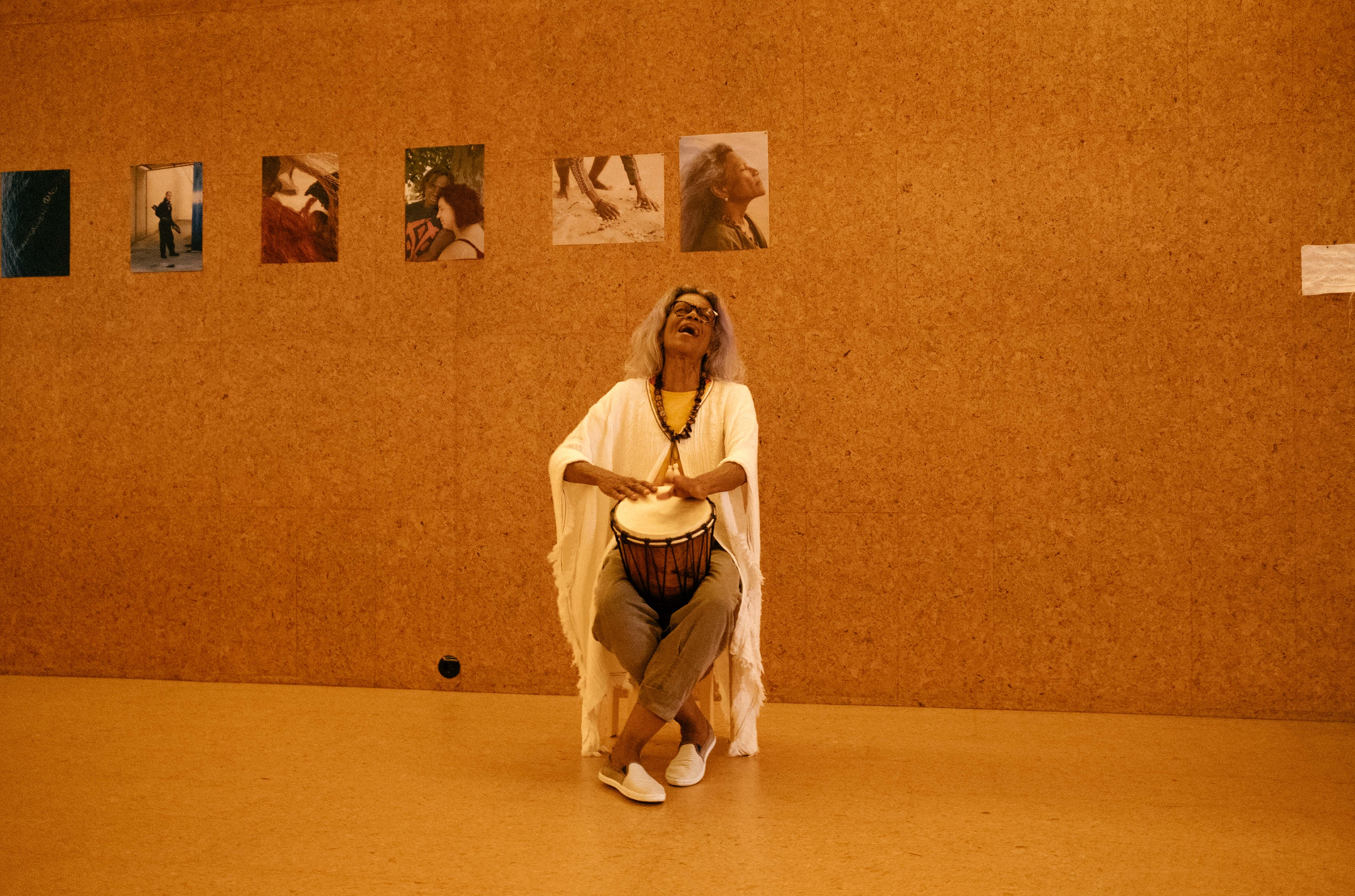
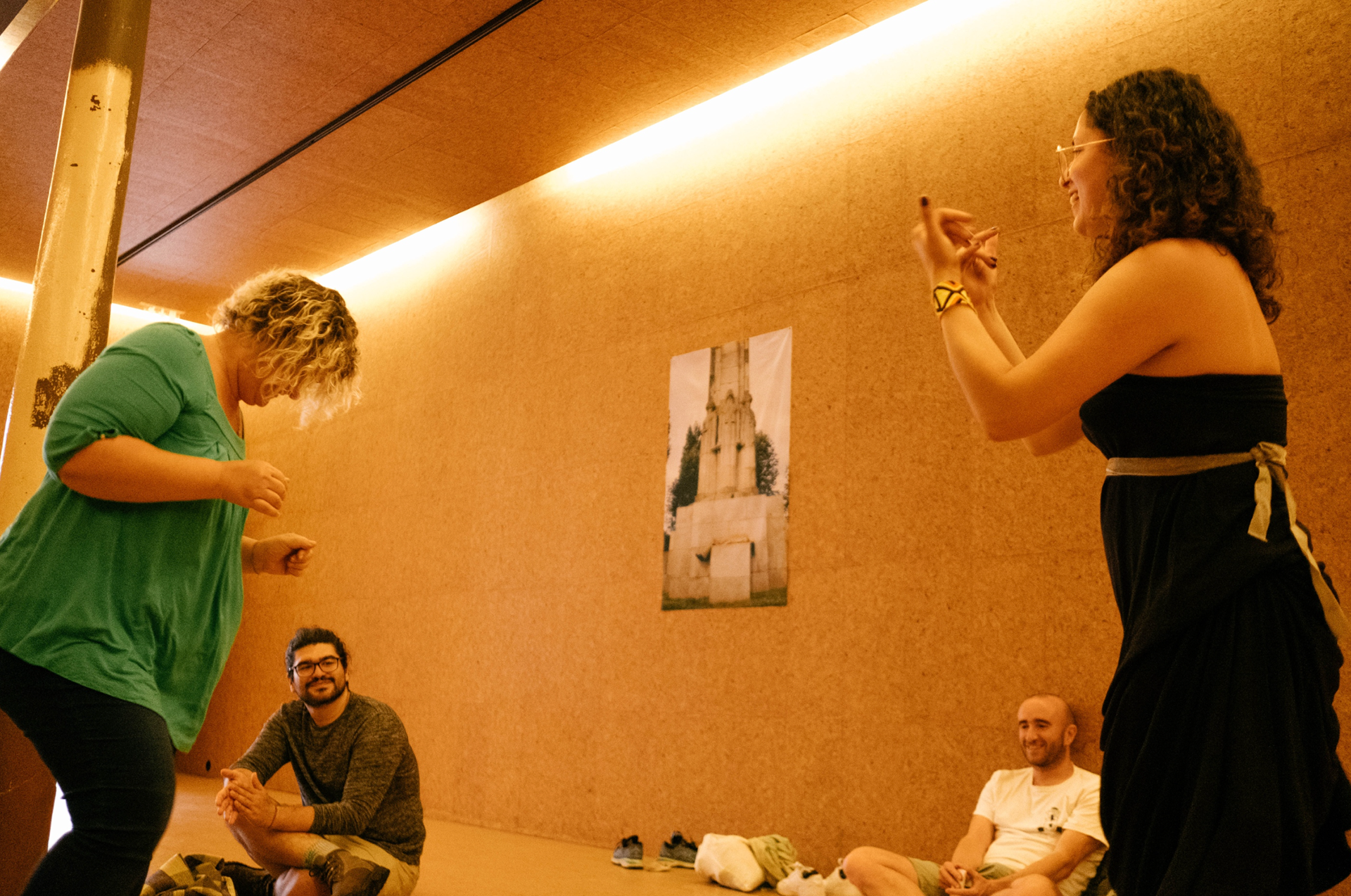
pensamentos
viver uma experiência de residência artística em outro país foi transformador. a artista que foi não coincide com a artista que volta – me revejo enquanto artista após passar pelo desafio de pesquisar, reconhecer, encontrar, produzir e finalizar um trabalho em 3 meses. me sinto viva e reconheço a potência disruptiva que a arte tem. nesse processo, descubro que a minha fotografia parte de um lugar do encontro - não encontro pela fotografia, mas fotografo a partir do encontro - e nesse sentido, o que Prefácio do Presente me trouxe foi a possibilidade de vivenciar no meu corpo um espaço marcado por uma história que me atravessa e atravessa quem nele habita, de diferentes formas.
as palavras e as imagens foram as possibilidades de conexões criadas para começar a entender sobre um certo lugar: as sensações psicológicas a que corpas são submetidas em certos territórios e como esses territórios se mesclam – imigração, colonização, presente, passado e possibilidade de criar futuros menos submissos as forças reativas da história.
aprendo, nesse período, que meu trabalho é vivo e não se enquadra em paredes que o fechem. preciso da vitalidade para poder seguir o fluxo quando sou convocada a falar e agir. assim, a sensação é de ter alcançado algo para além daquilo que me propus inicialmente, intui que falar de saúde mental e imigração brasileira em Porto seria suficiente, porém foi preciso que eu olhasse para os escombros da história da colonização portuguesa que ainda ecoam no presente e interferem diretamente nos modos e maneiras que imigrantes brasileiros existem em Portugal.
a fotografia que me interessa não é aquela que fica apenas na parede, mas sim aquela que provoca e ressoa em quem vê, criando outras imagens dentro do que chamamos de mente, que na verdade é a nossa corpa inteira. e nesse sentido, criei um espaço onde naturalmente as imagens e as palavras provocaram o desejo de fala em quem ali esteve - pois houve identificação. havia entrega e emoção. e isso é saúde mental.
viver uma experiência de residência artística em outro país foi transformador. a artista que foi não coincide com a artista que volta – me revejo enquanto artista após passar pelo desafio de pesquisar, reconhecer, encontrar, produzir e finalizar um trabalho em 3 meses. me sinto viva e reconheço a potência disruptiva que a arte tem. nesse processo, descubro que a minha fotografia parte de um lugar do encontro - não encontro pela fotografia, mas fotografo a partir do encontro - e nesse sentido, o que Prefácio do Presente me trouxe foi a possibilidade de vivenciar no meu corpo um espaço marcado por uma história que me atravessa e atravessa quem nele habita, de diferentes formas.
as palavras e as imagens foram as possibilidades de conexões criadas para começar a entender sobre um certo lugar: as sensações psicológicas a que corpas são submetidas em certos territórios e como esses territórios se mesclam – imigração, colonização, presente, passado e possibilidade de criar futuros menos submissos as forças reativas da história.
aprendo, nesse período, que meu trabalho é vivo e não se enquadra em paredes que o fechem. preciso da vitalidade para poder seguir o fluxo quando sou convocada a falar e agir. assim, a sensação é de ter alcançado algo para além daquilo que me propus inicialmente, intui que falar de saúde mental e imigração brasileira em Porto seria suficiente, porém foi preciso que eu olhasse para os escombros da história da colonização portuguesa que ainda ecoam no presente e interferem diretamente nos modos e maneiras que imigrantes brasileiros existem em Portugal.
a fotografia que me interessa não é aquela que fica apenas na parede, mas sim aquela que provoca e ressoa em quem vê, criando outras imagens dentro do que chamamos de mente, que na verdade é a nossa corpa inteira. e nesse sentido, criei um espaço onde naturalmente as imagens e as palavras provocaram o desejo de fala em quem ali esteve - pois houve identificação. havia entrega e emoção. e isso é saúde mental.
thoughts
living an artistic residency experience in another country was transformative. the artist who left doesn't coincide with the artist who returns - I see myself as an artist after going through the challenge of researching, recognizing, finding, producing and finishing a work in three months. I feel alive and recognize the disruptive power that art has. in this process, I discover that my photography starts from a meeting place - I don't meet through photography, but I photograph from the meeting - and in this sense, what the Preface of the Present brought me was the possibility to experience in my body a space marked by a history that goes through me and through those who inhabit it, in different ways.
The words and images were the possibilities of connections created to begin to understand about a certain place: the psychological sensations that bodies are submitted to in certain territories and how these territories blend together - immigration, colonization, present, past, and the possibility of creating futures less submissive to the reactive forces of history.
I learn, in this period, that my work is alive and does not fit into walls that close it. I need vitality to be able to follow the flow when I am summoned to speak and act. thus, the sensation is that I have achieved something beyond what I initially set out to do, I intuited that talking about mental health and Brazilian immigration in Porto would be enough, but it was necessary for me to look at the debris from the history of Portuguese colonization that still echoes in the present and interferes directly in the ways and manners that Brazilian immigrants exist in Portugal.
the photograph that interests me is not the one that just hangs on the wall, but the one that provokes and resonates in those who see it, creating other images within what we call mind, which is actually our entire body. and in this sense, I created a space where naturally the images and words provoked the desire to speak in those who were there - because there was identification. there was surrender and emotion. and that is mental health.
The words and images were the possibilities of connections created to begin to understand about a certain place: the psychological sensations that bodies are submitted to in certain territories and how these territories blend together - immigration, colonization, present, past, and the possibility of creating futures less submissive to the reactive forces of history.
I learn, in this period, that my work is alive and does not fit into walls that close it. I need vitality to be able to follow the flow when I am summoned to speak and act. thus, the sensation is that I have achieved something beyond what I initially set out to do, I intuited that talking about mental health and Brazilian immigration in Porto would be enough, but it was necessary for me to look at the debris from the history of Portuguese colonization that still echoes in the present and interferes directly in the ways and manners that Brazilian immigrants exist in Portugal.
the photograph that interests me is not the one that just hangs on the wall, but the one that provokes and resonates in those who see it, creating other images within what we call mind, which is actually our entire body. and in this sense, I created a space where naturally the images and words provoked the desire to speak in those who were there - because there was identification. there was surrender and emotion. and that is mental health.
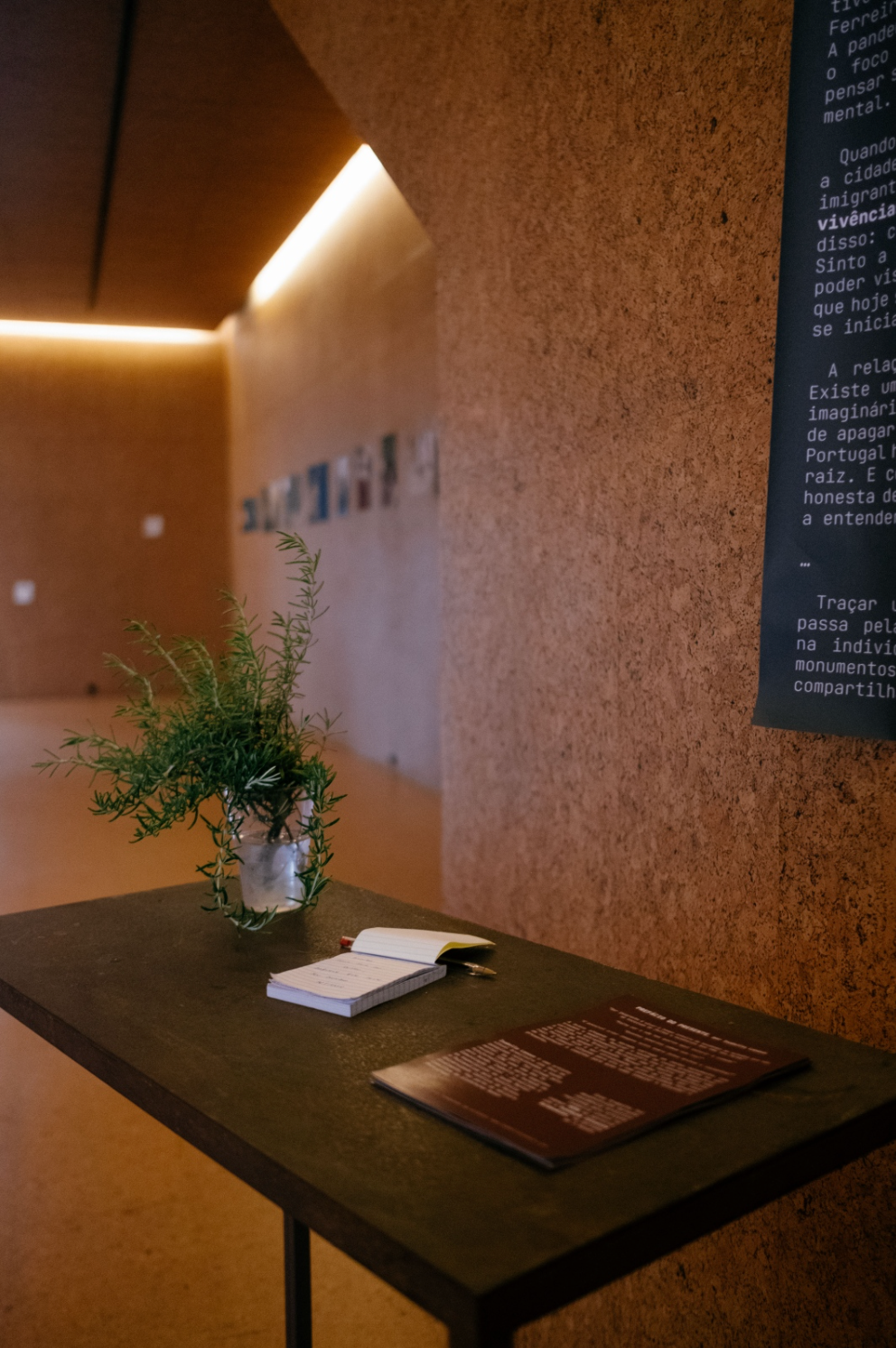
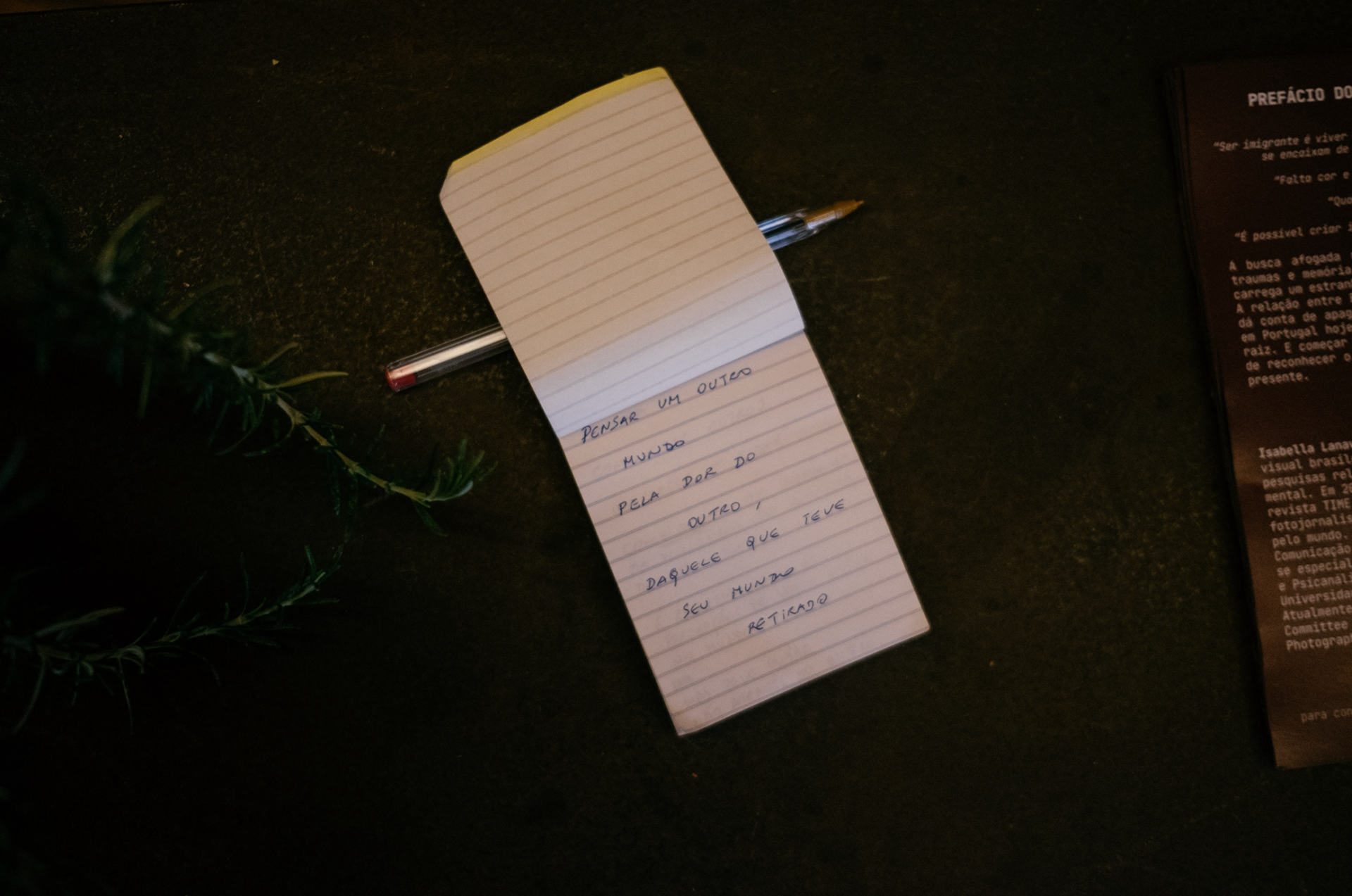
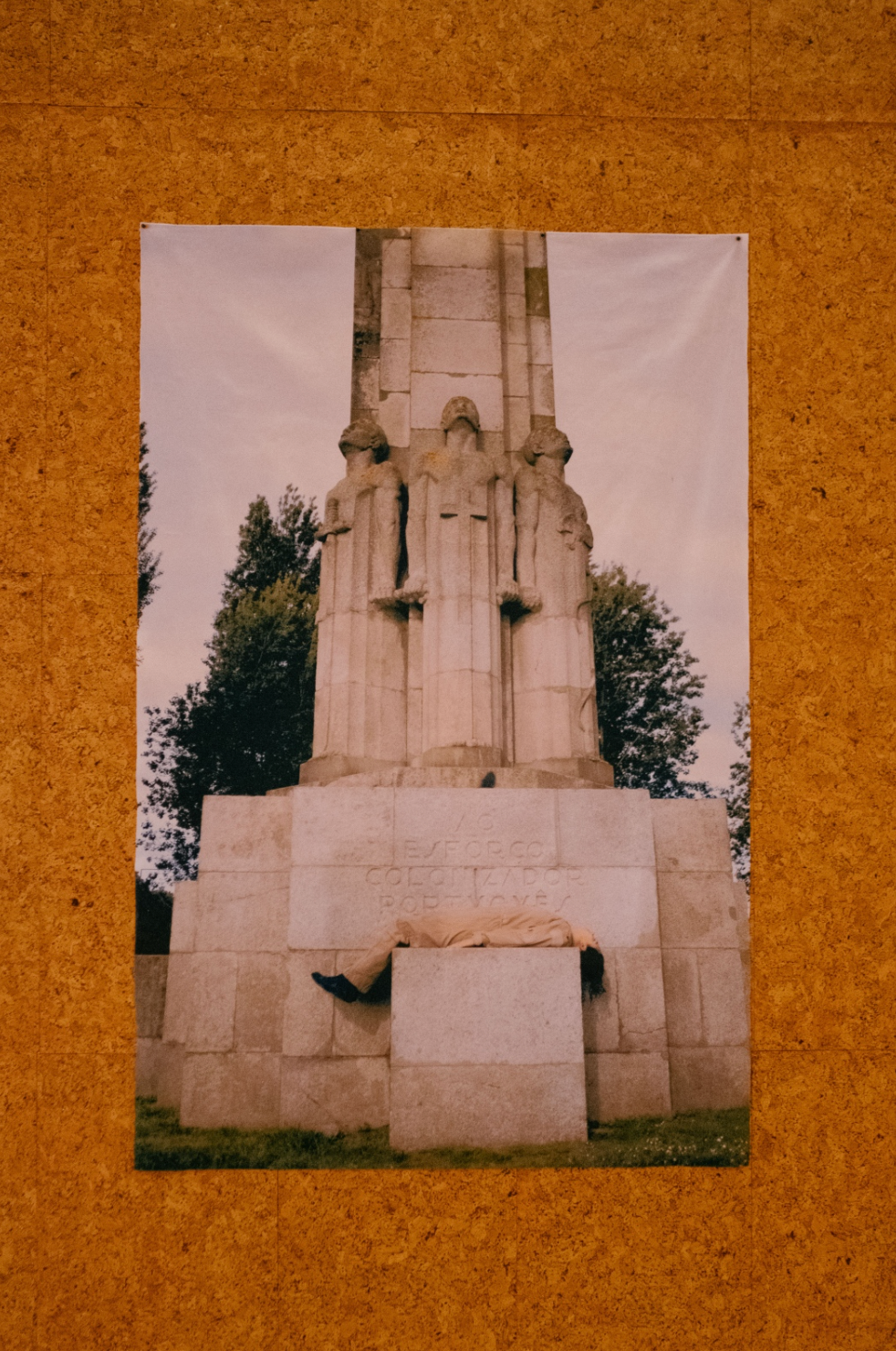
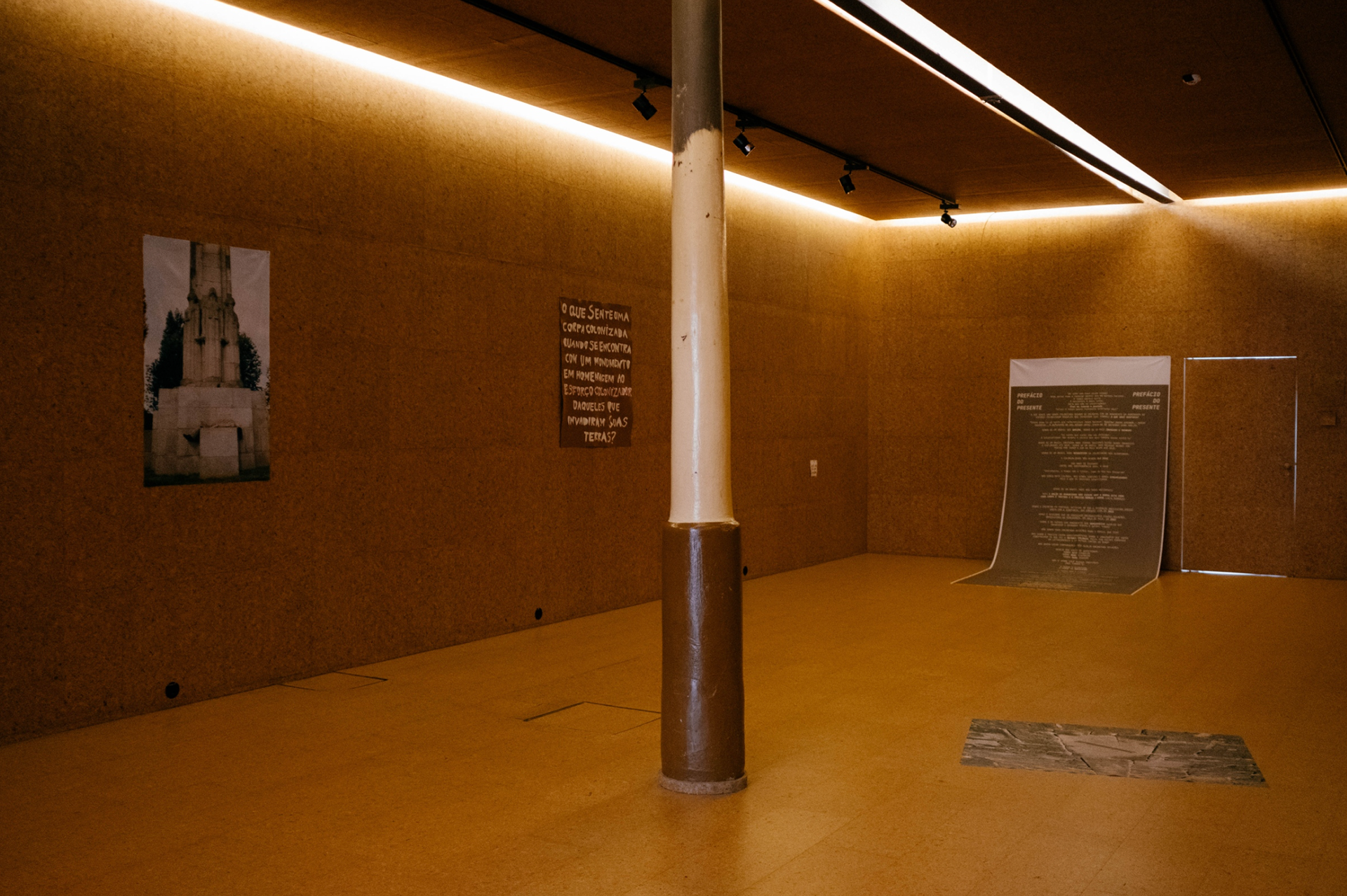
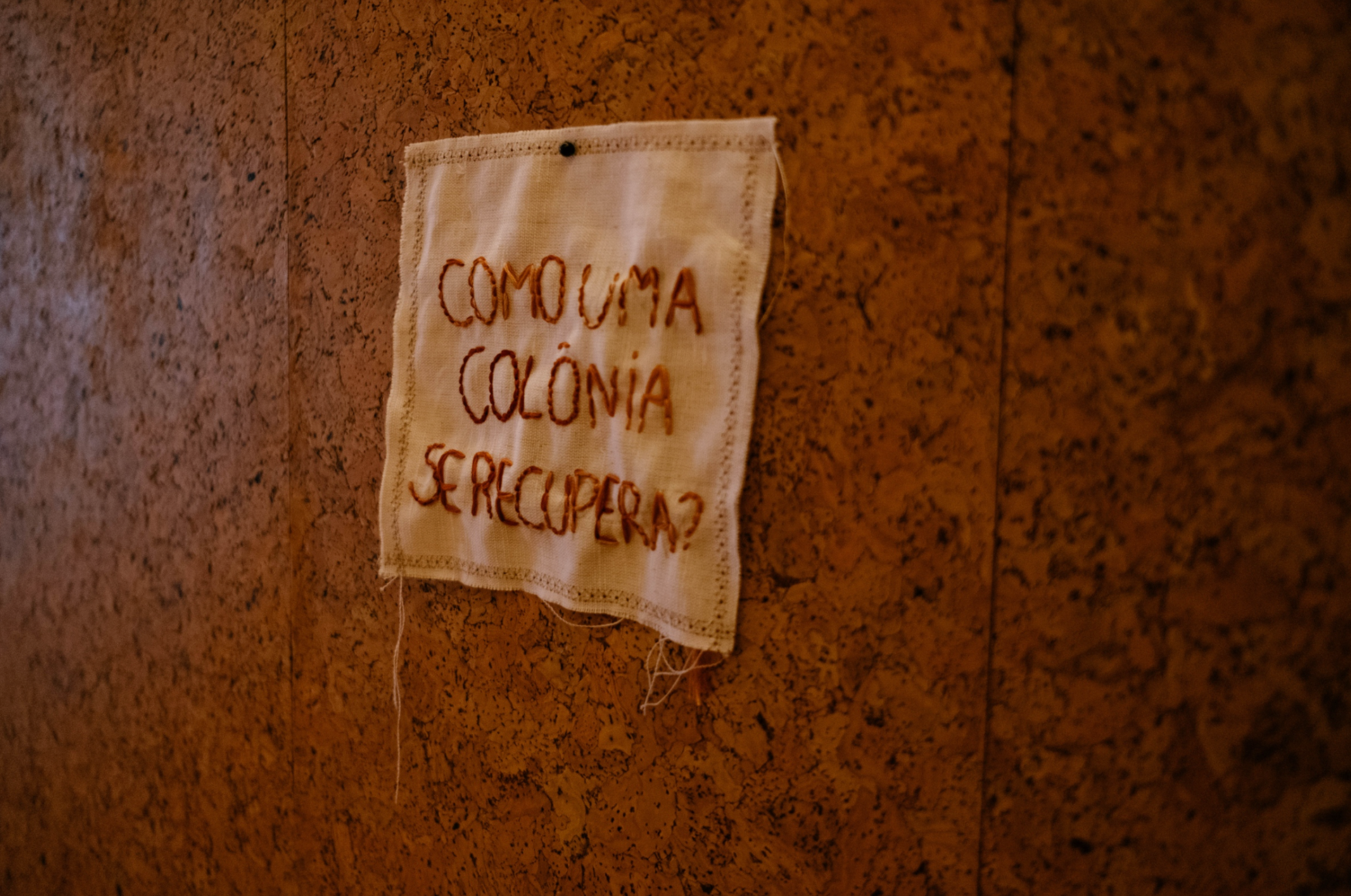
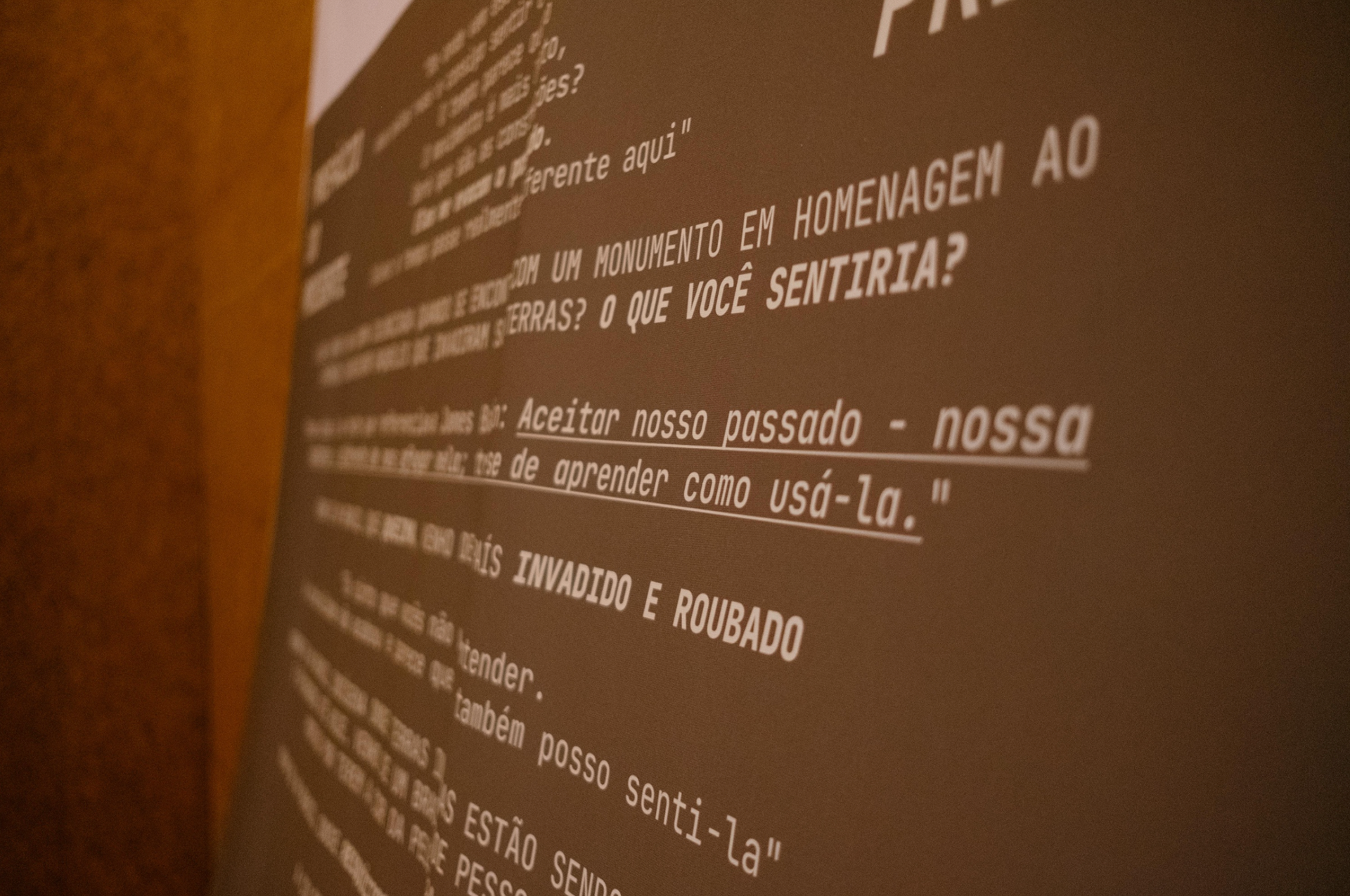
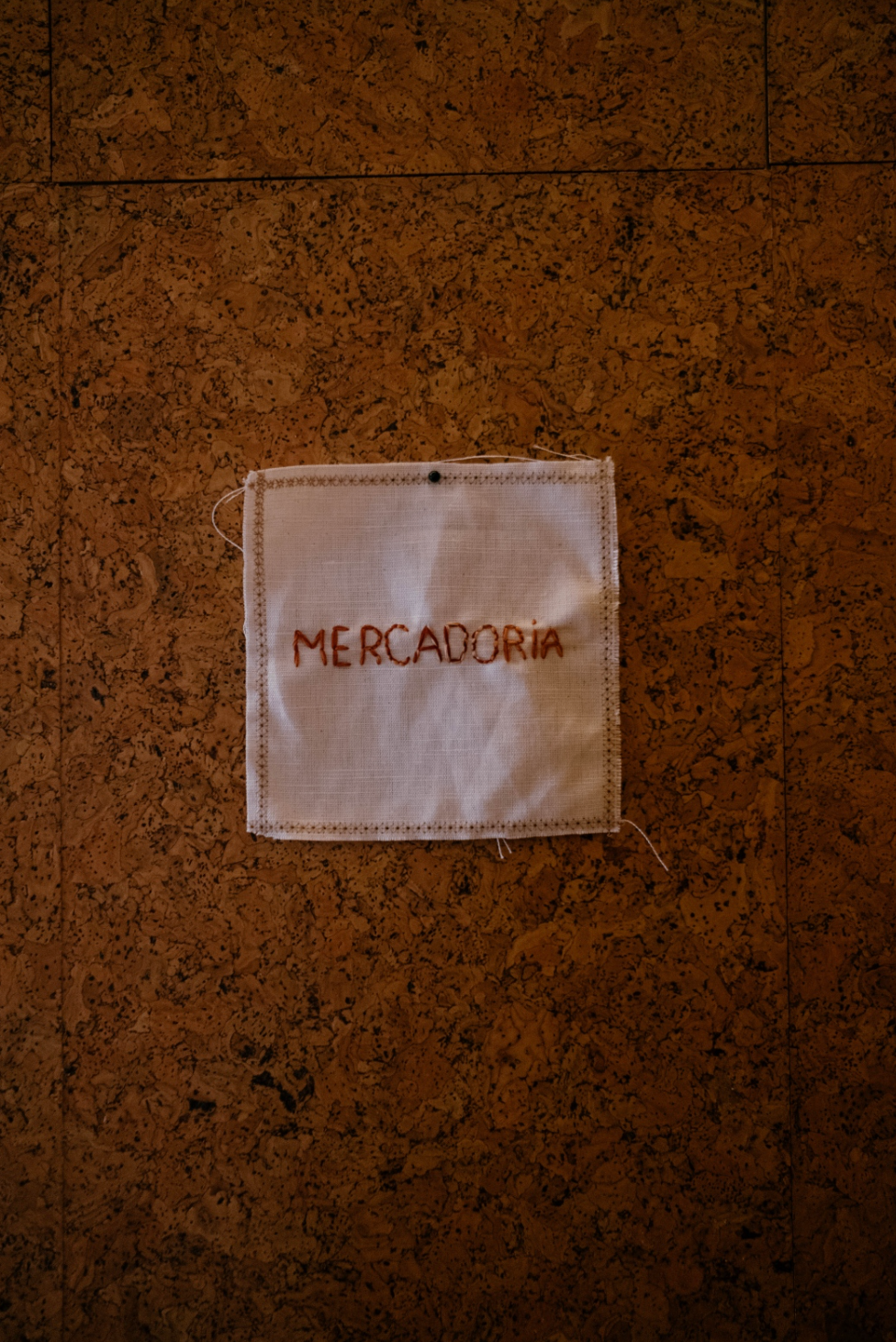
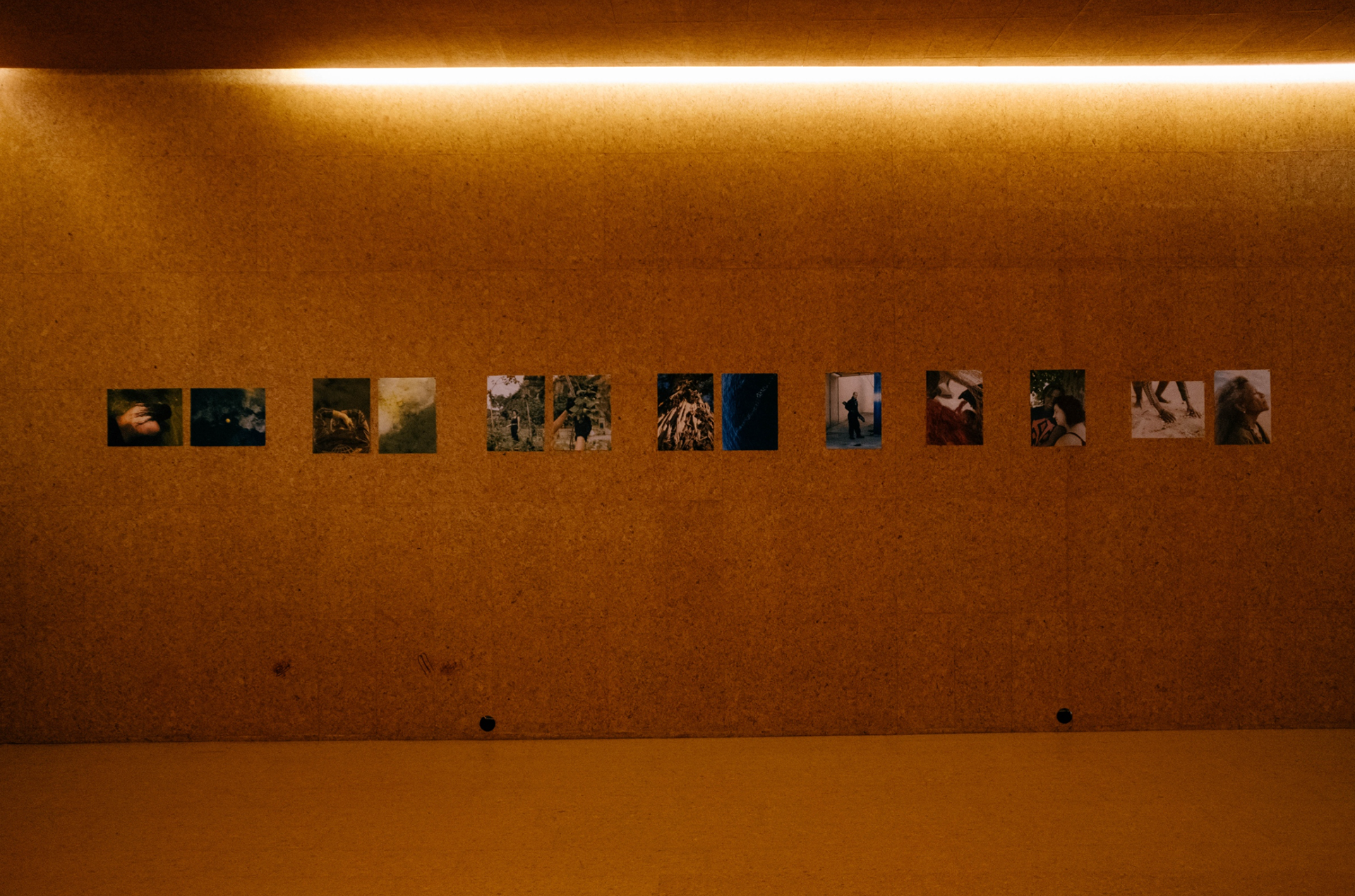
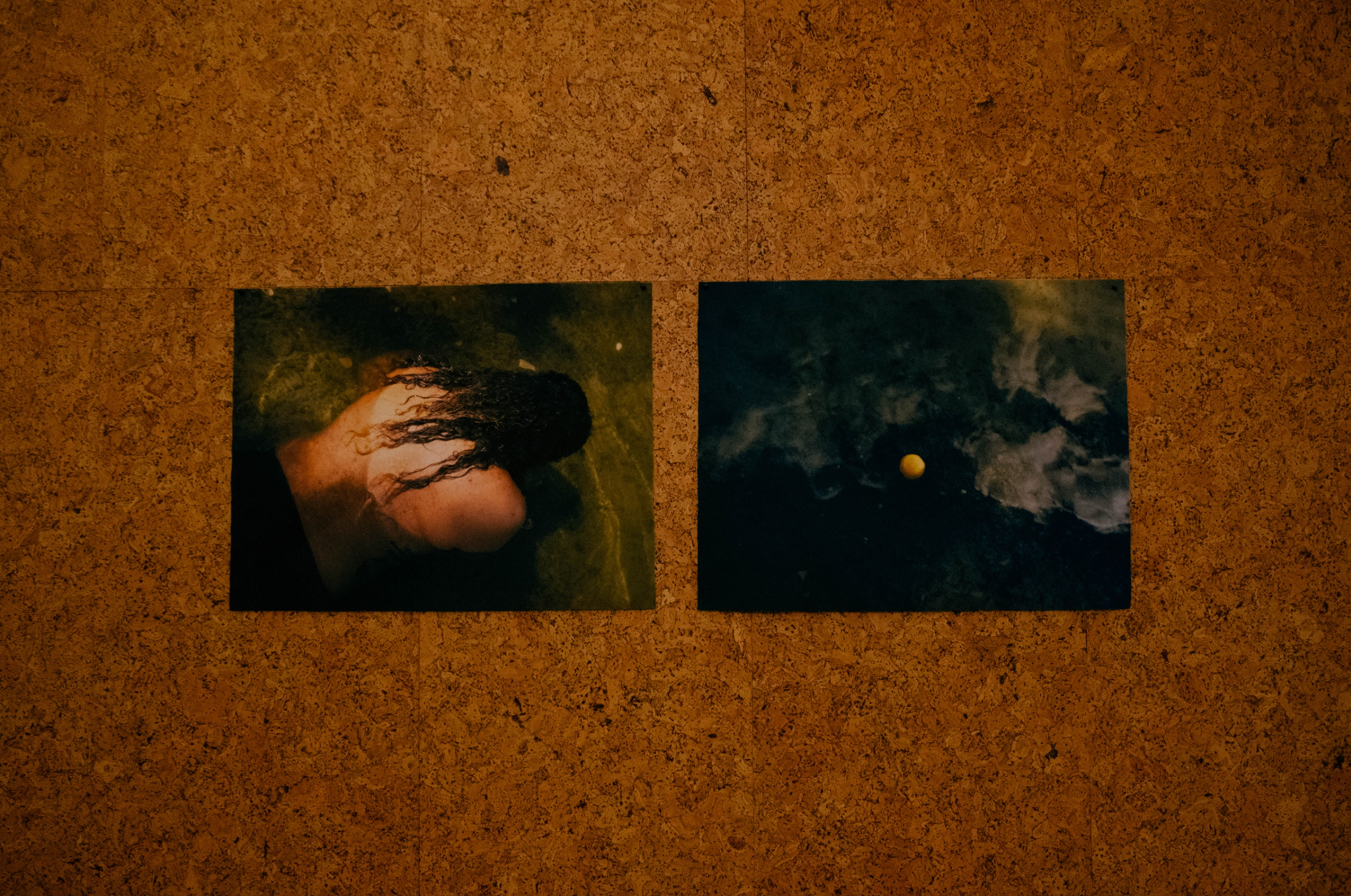
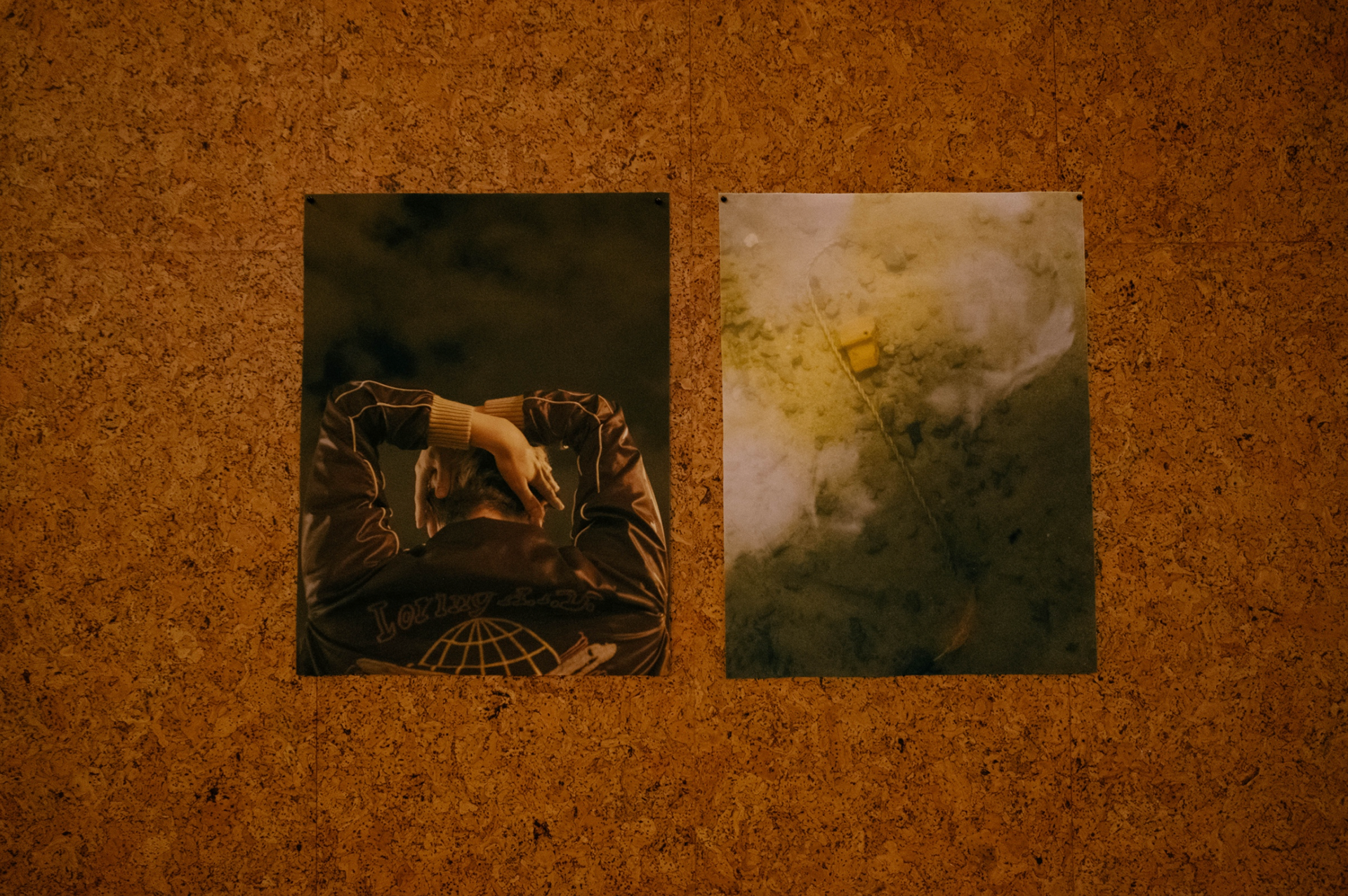
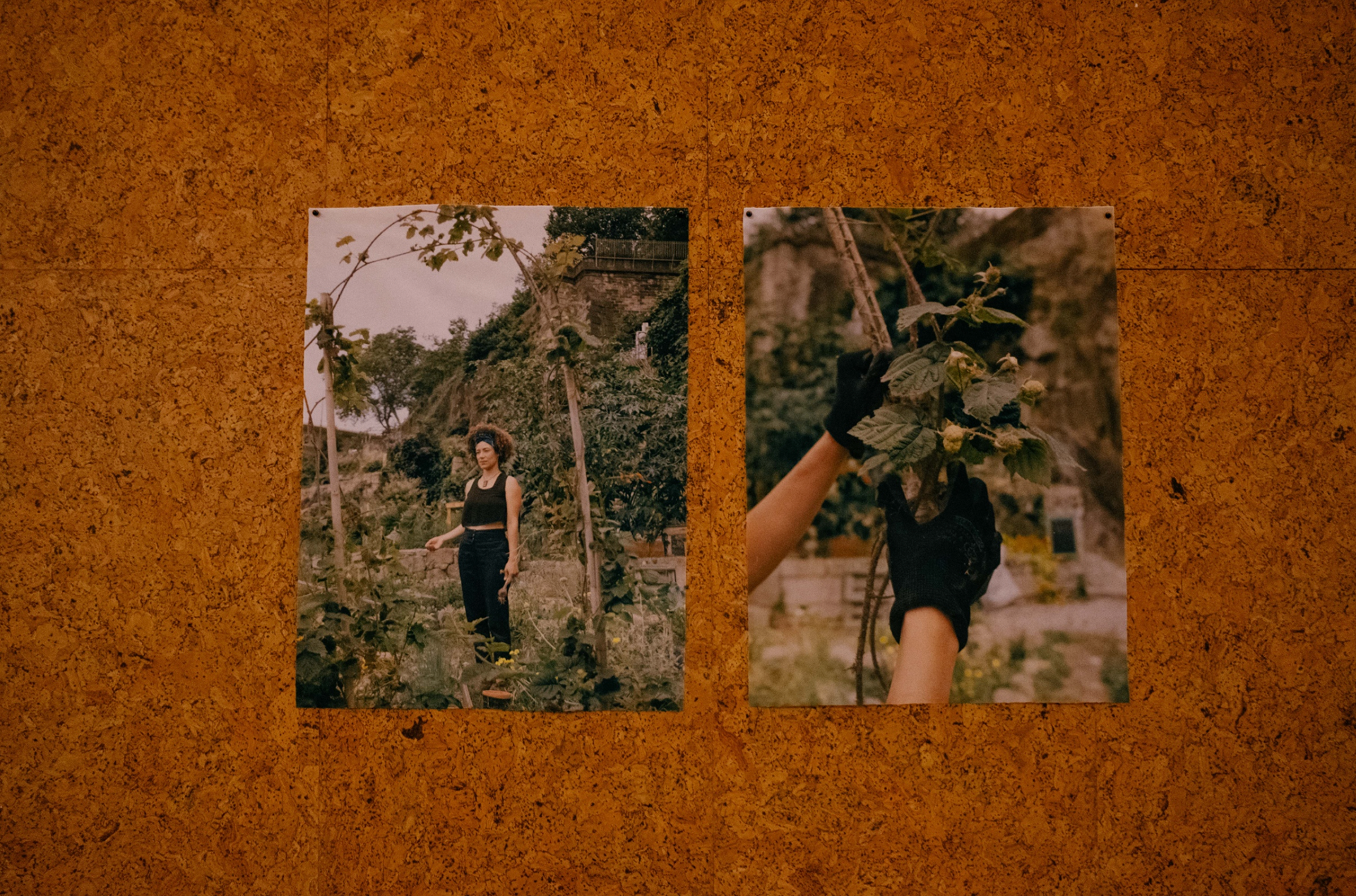
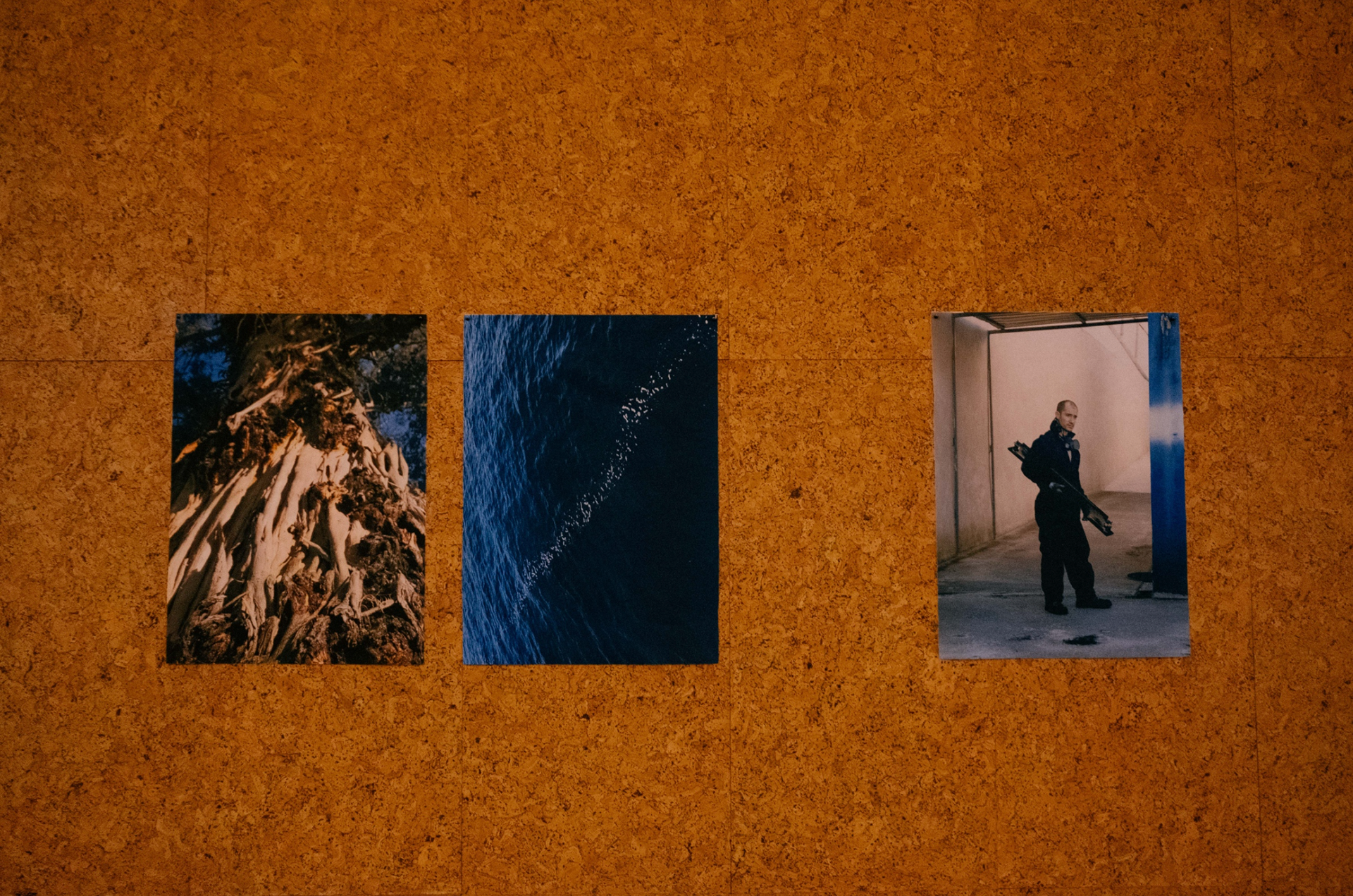
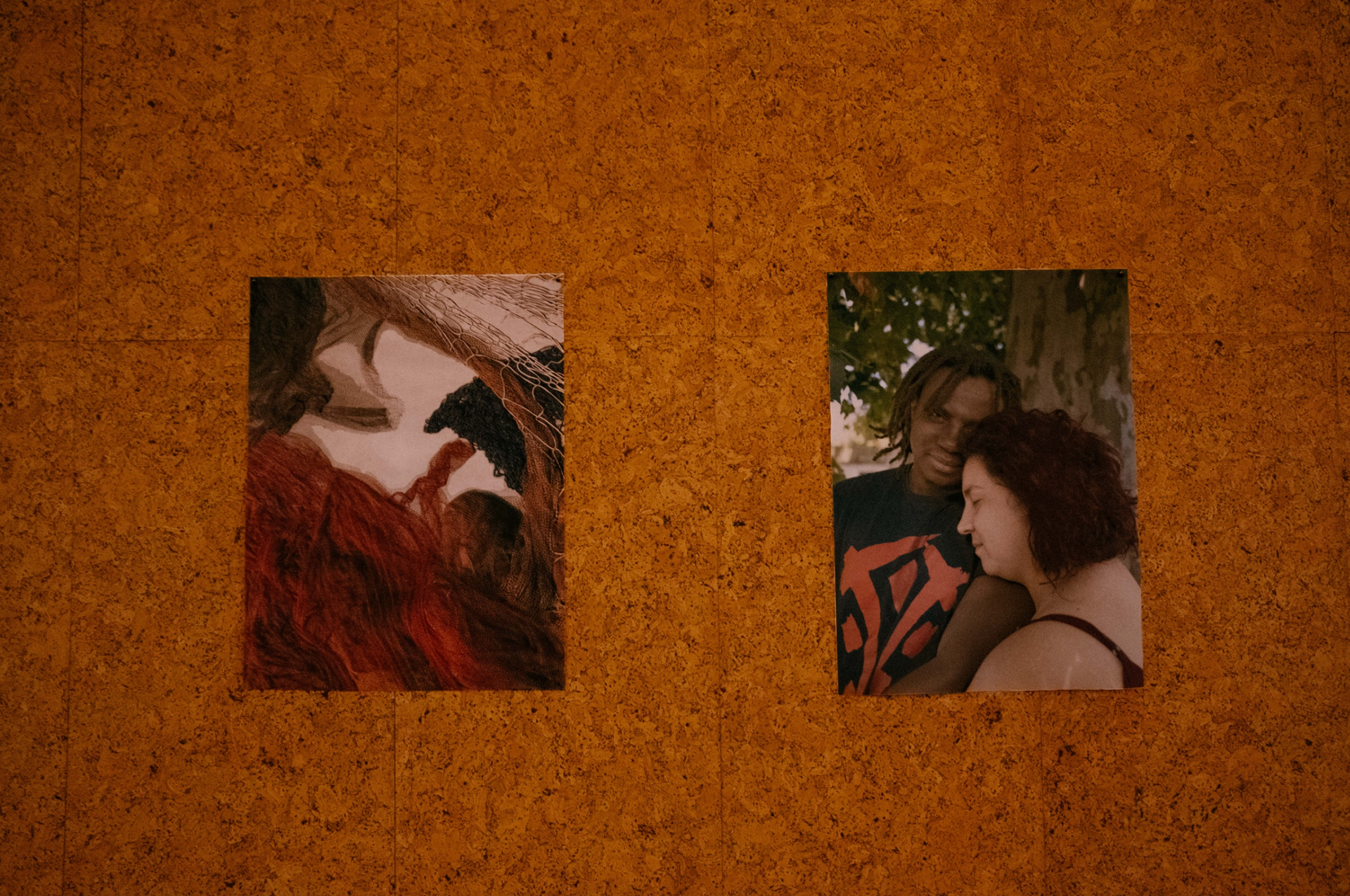
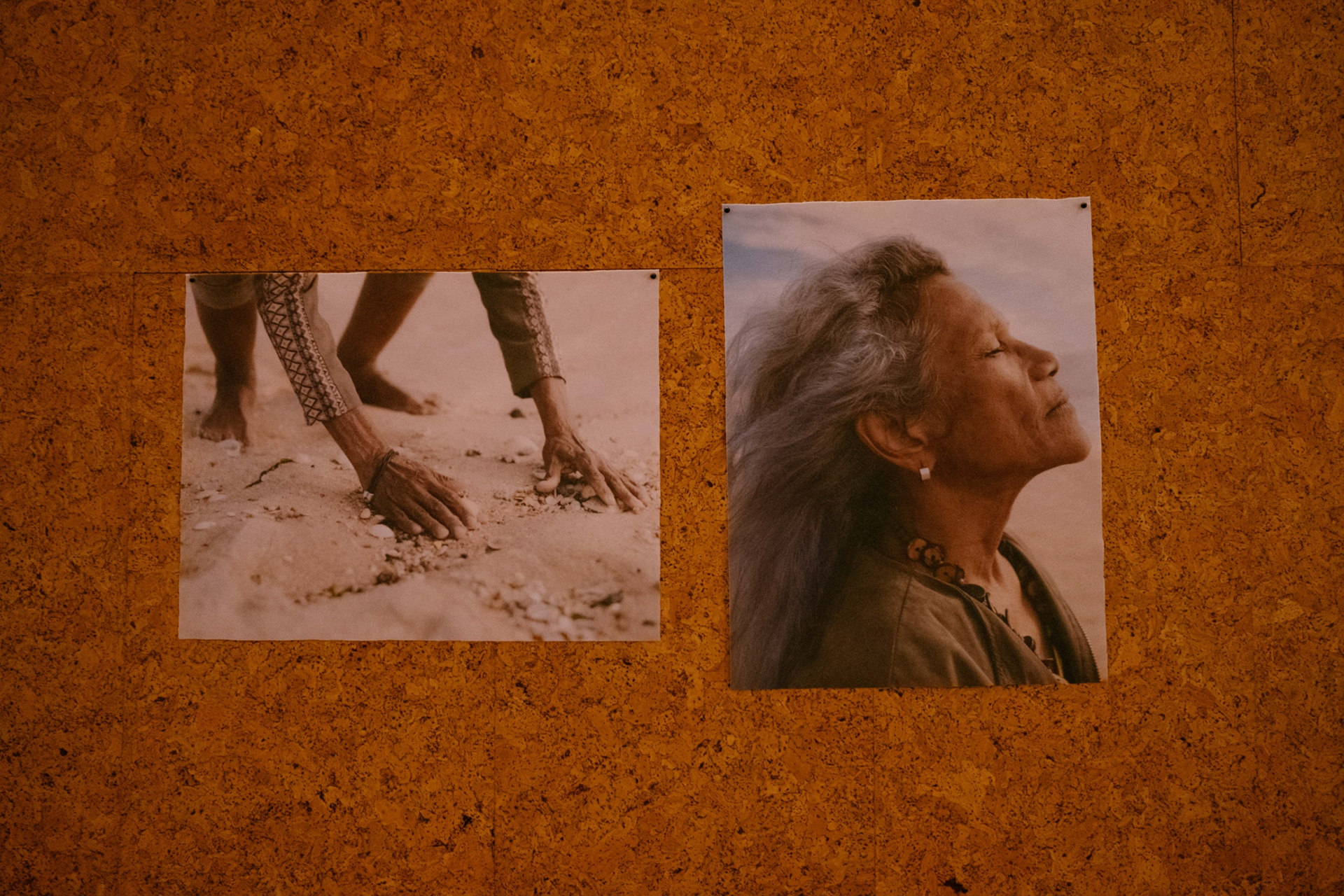
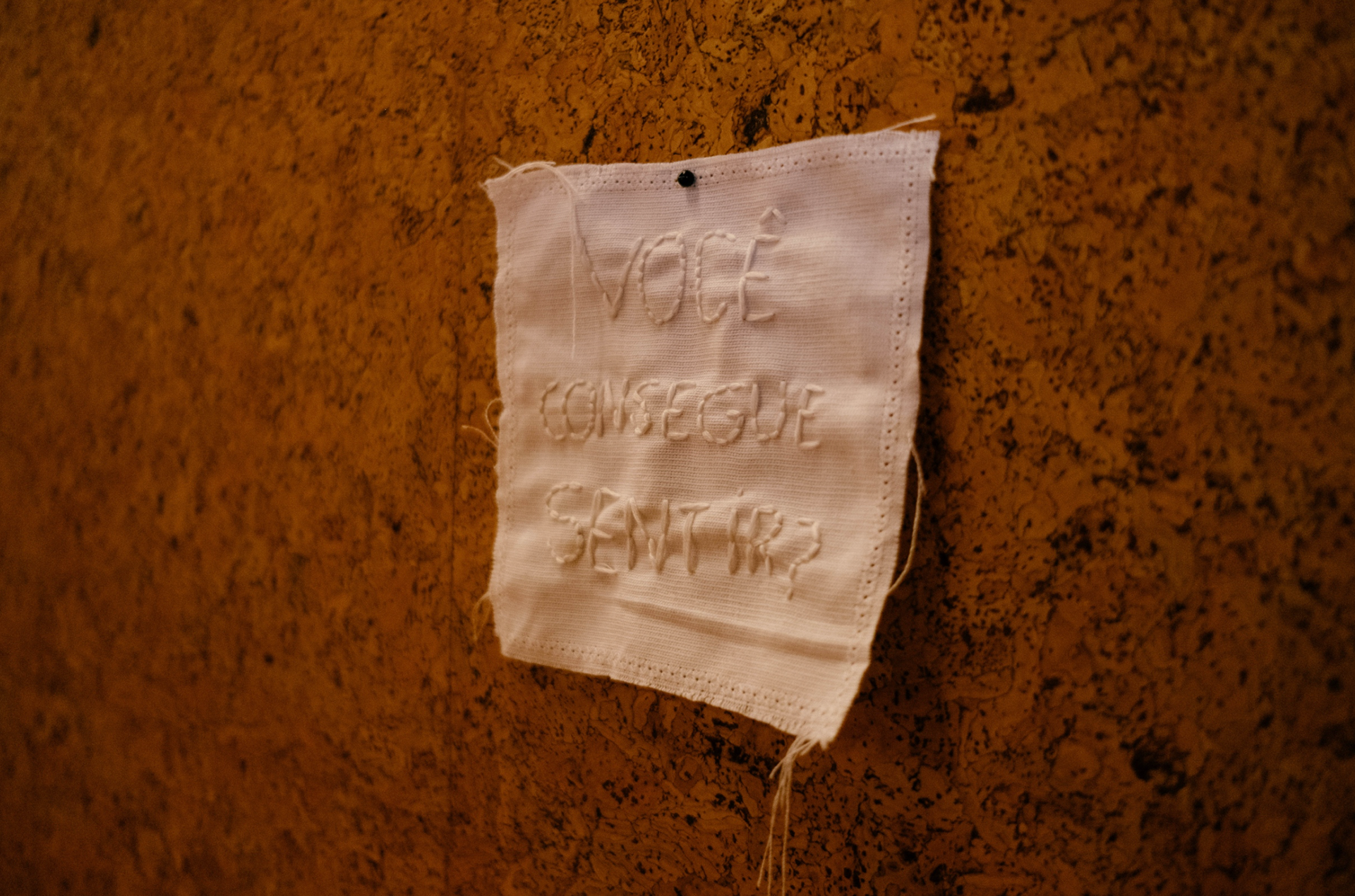
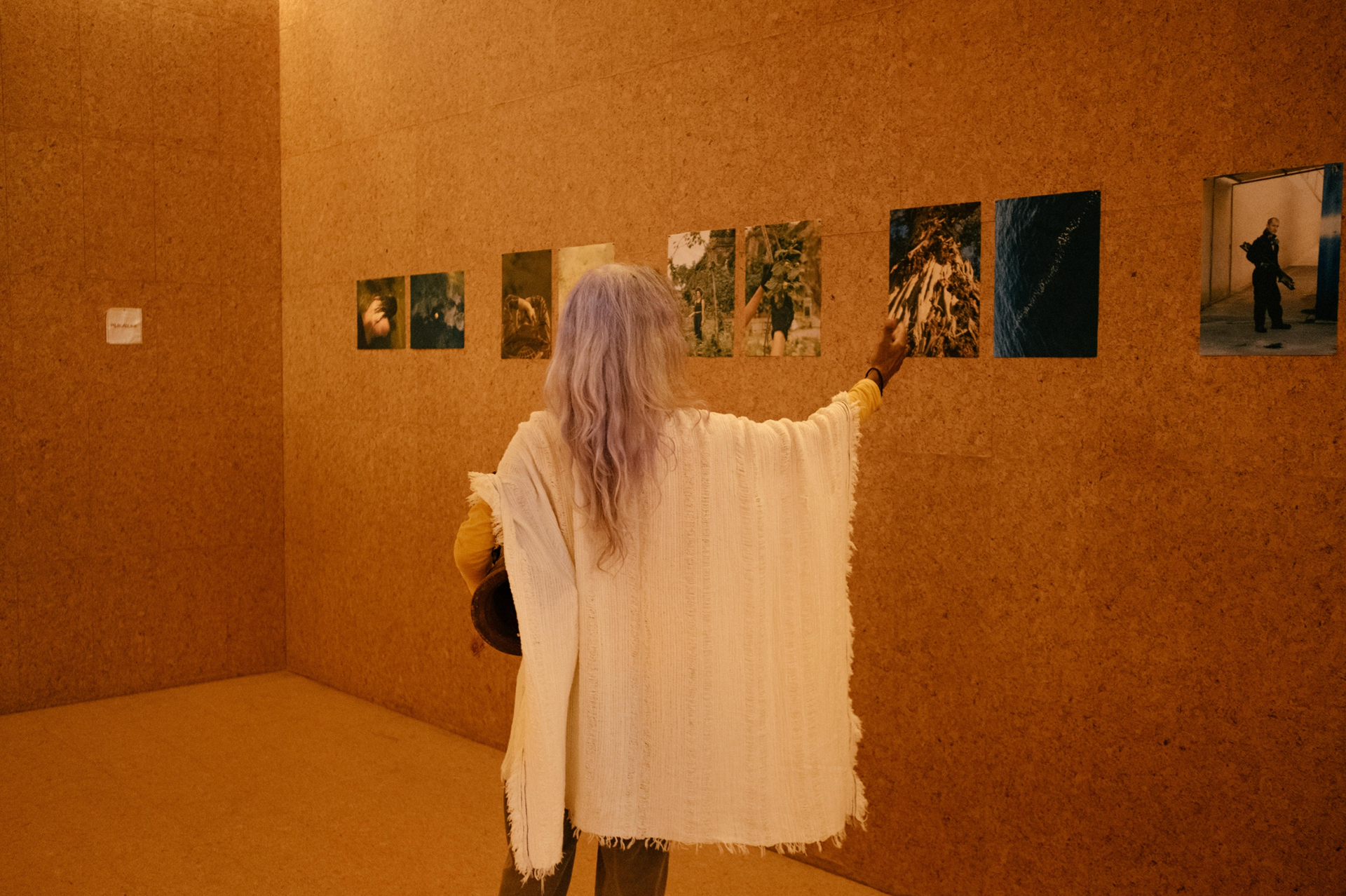
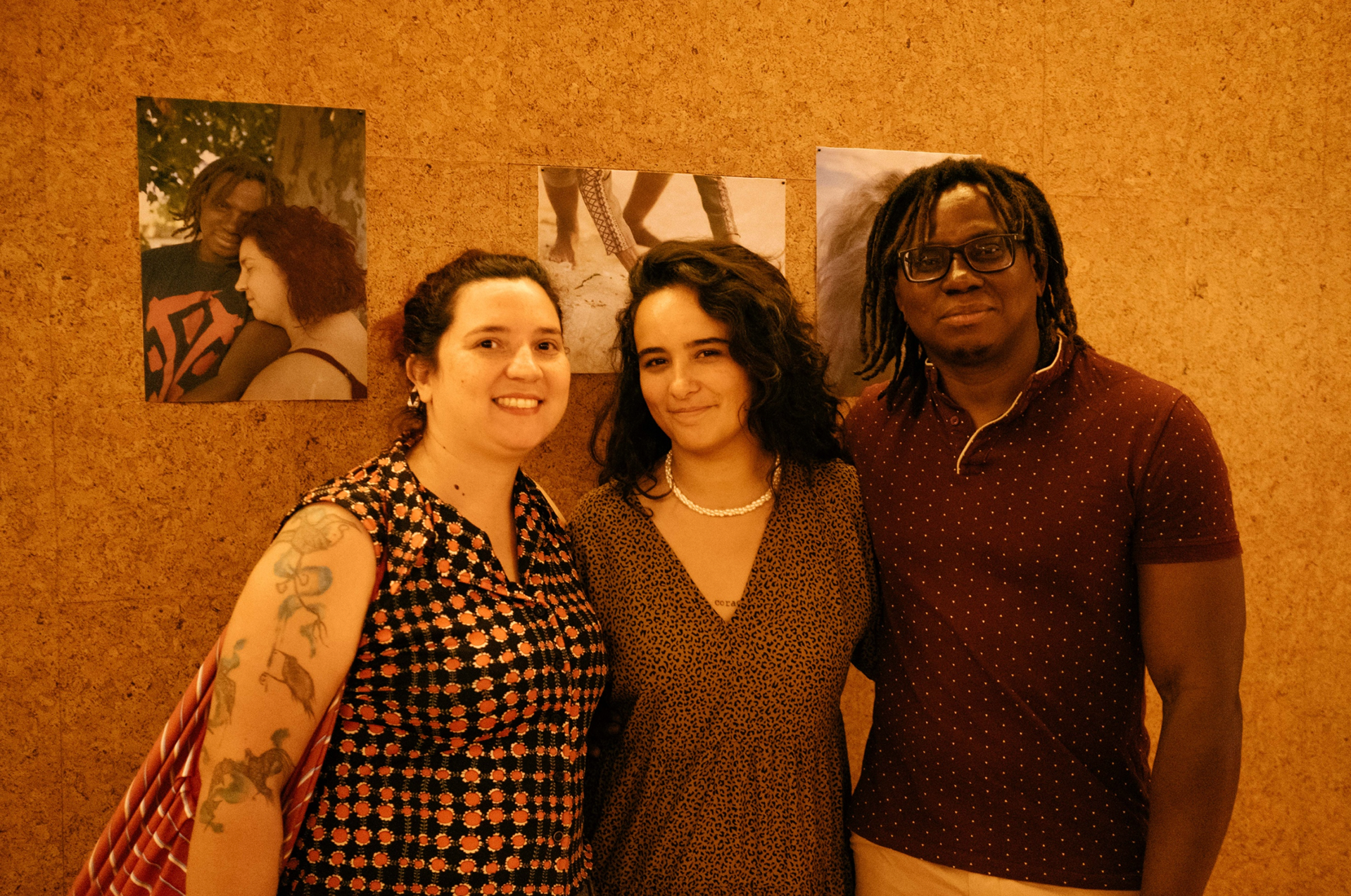
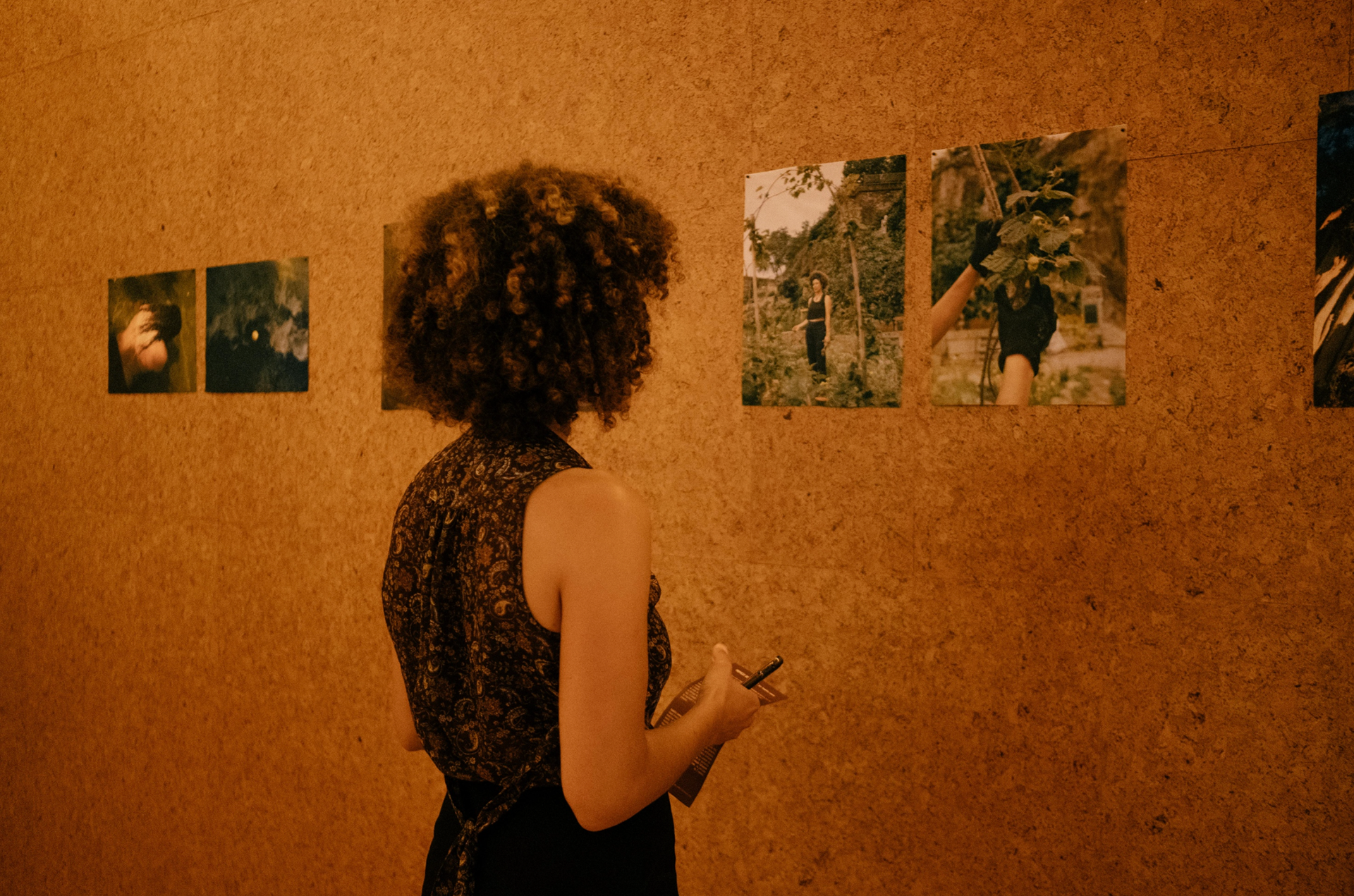
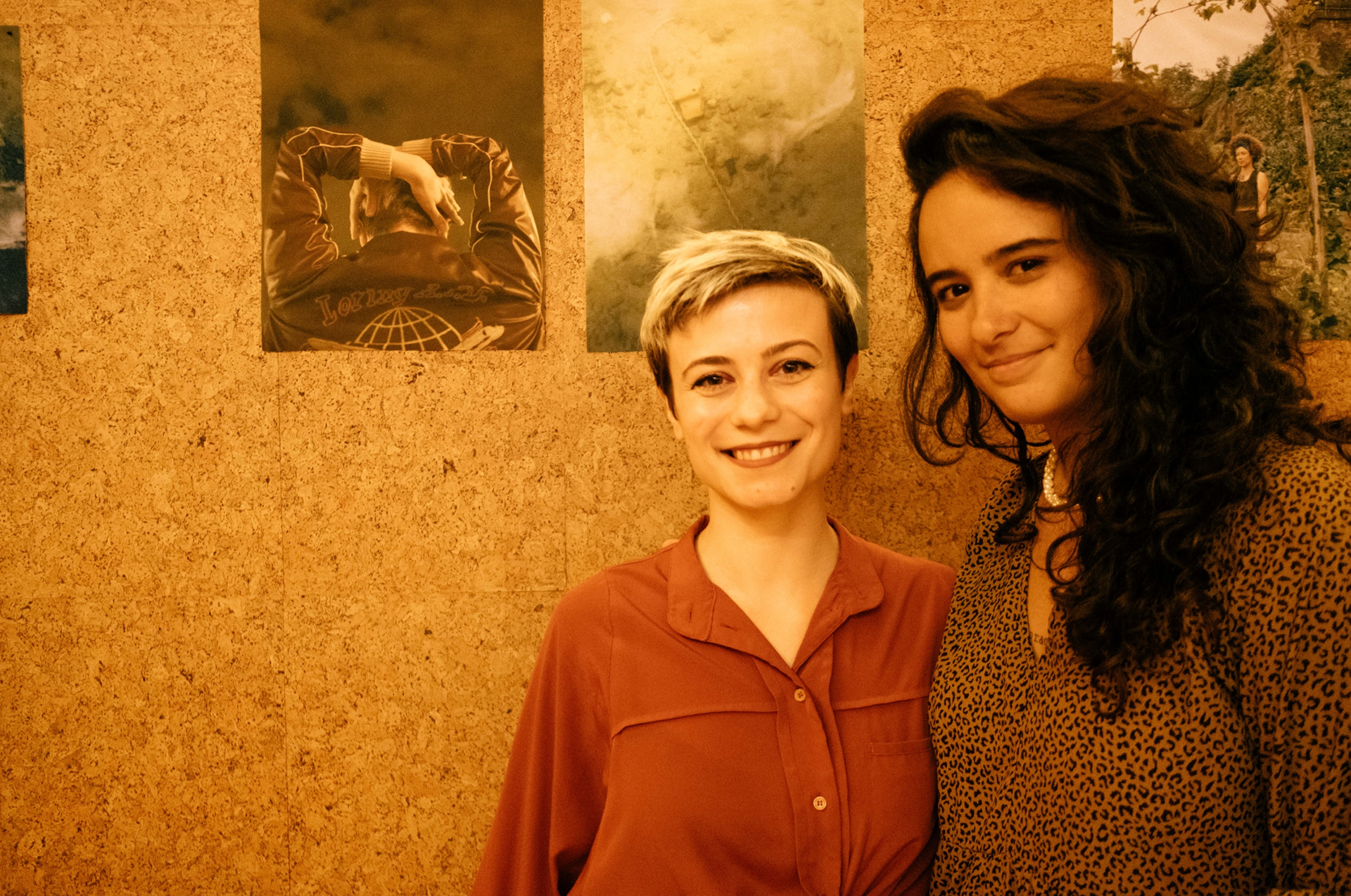
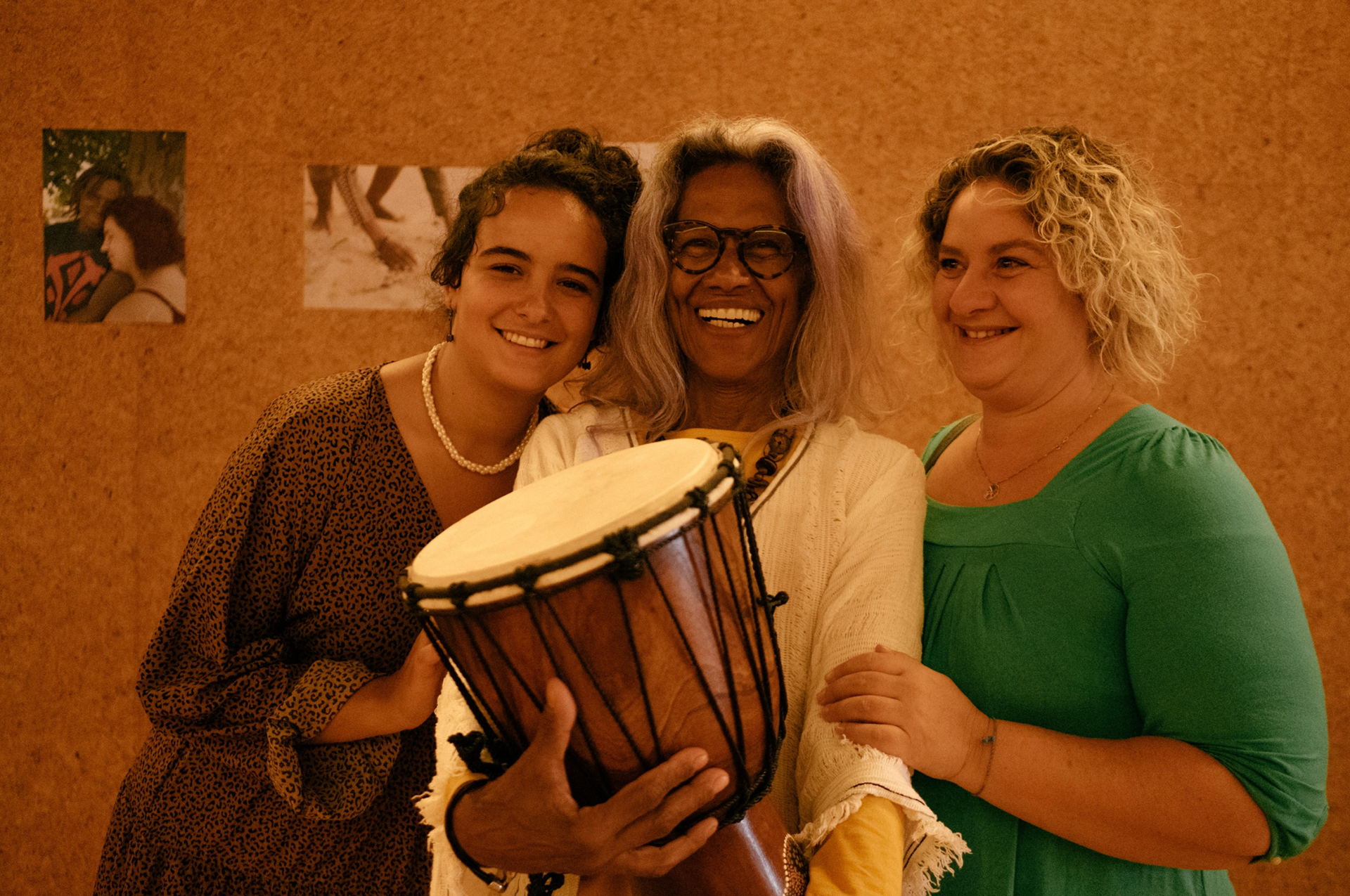
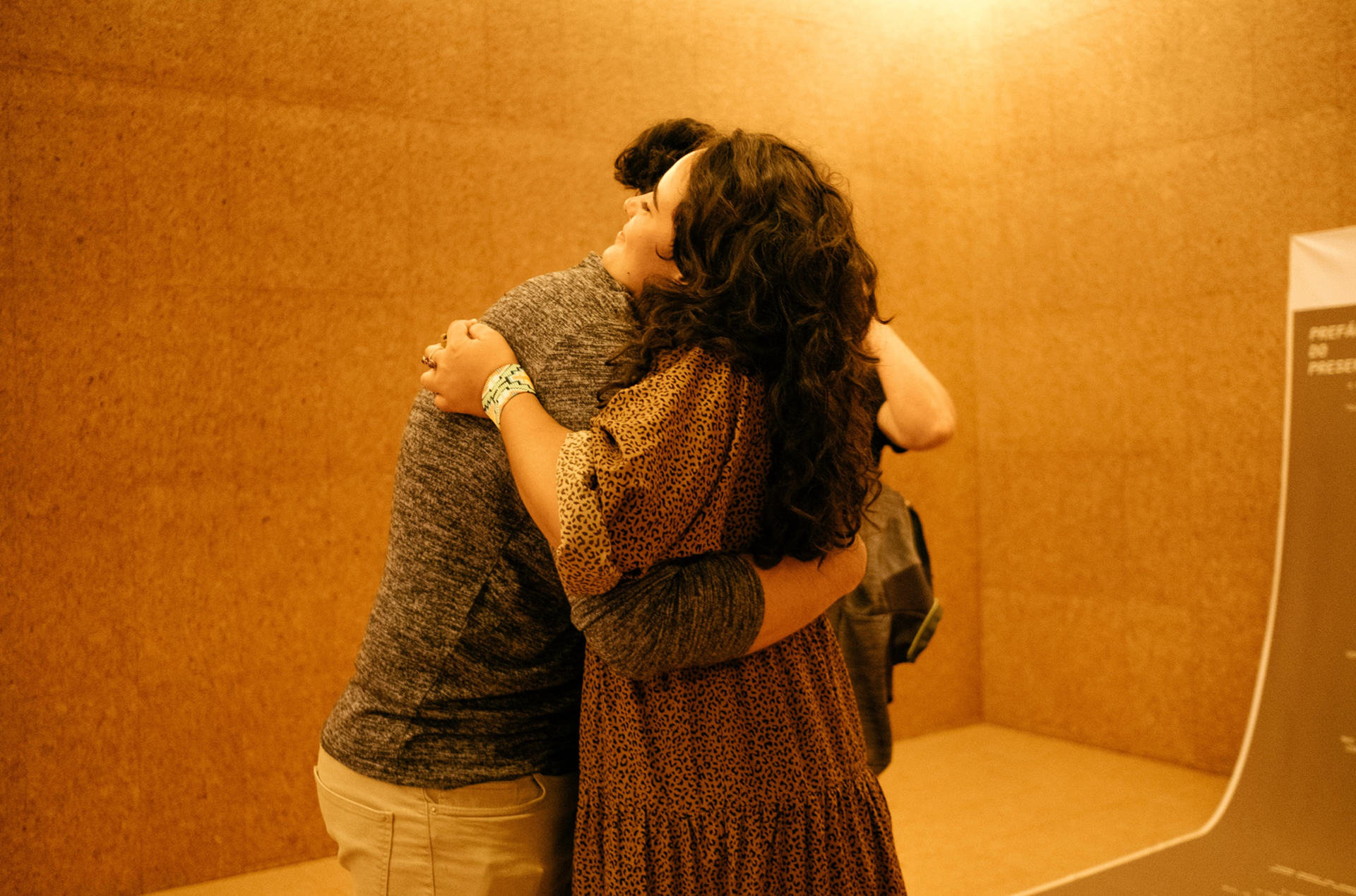
texto-obra na exposição / text-work in the exhibition:
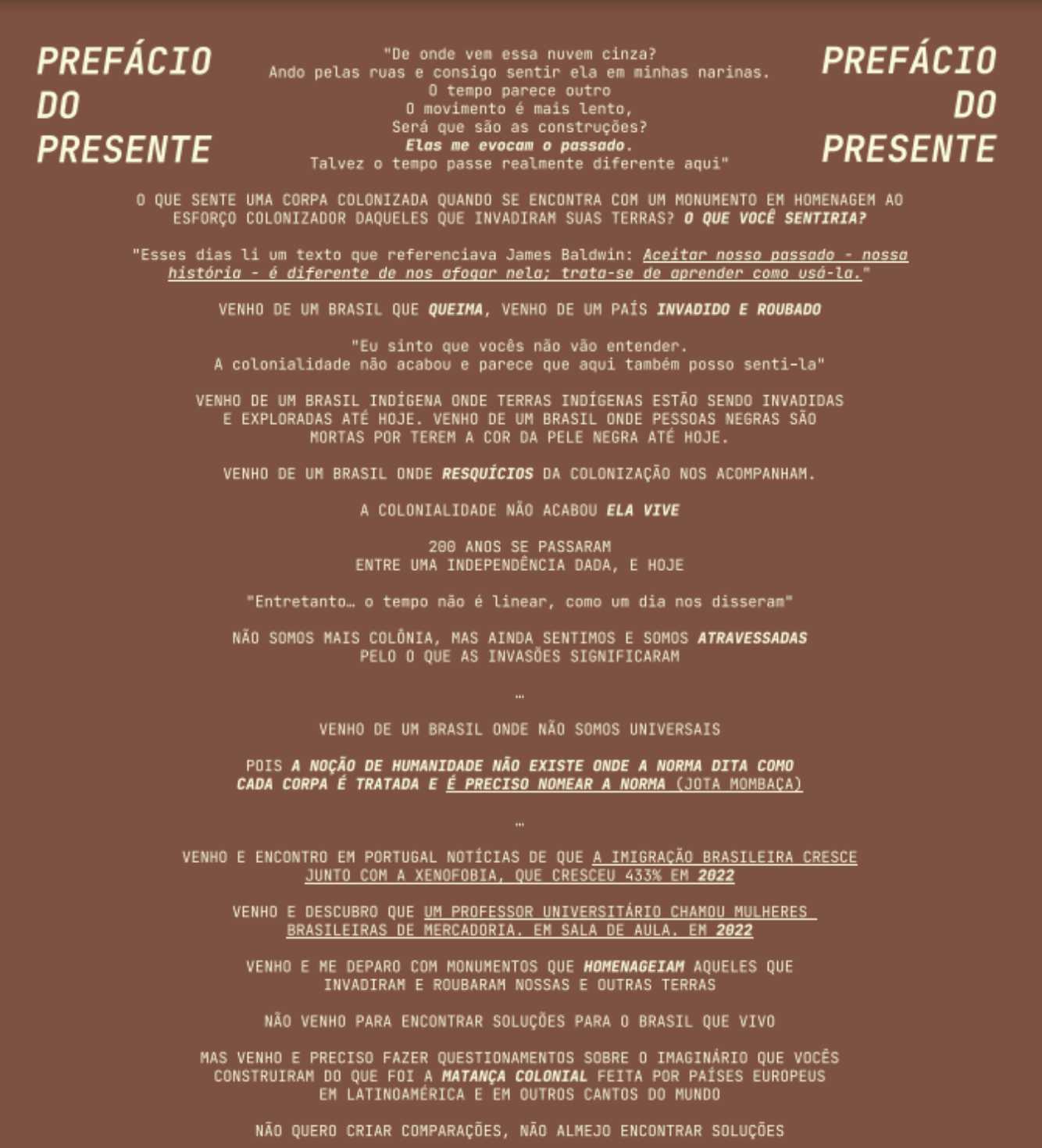
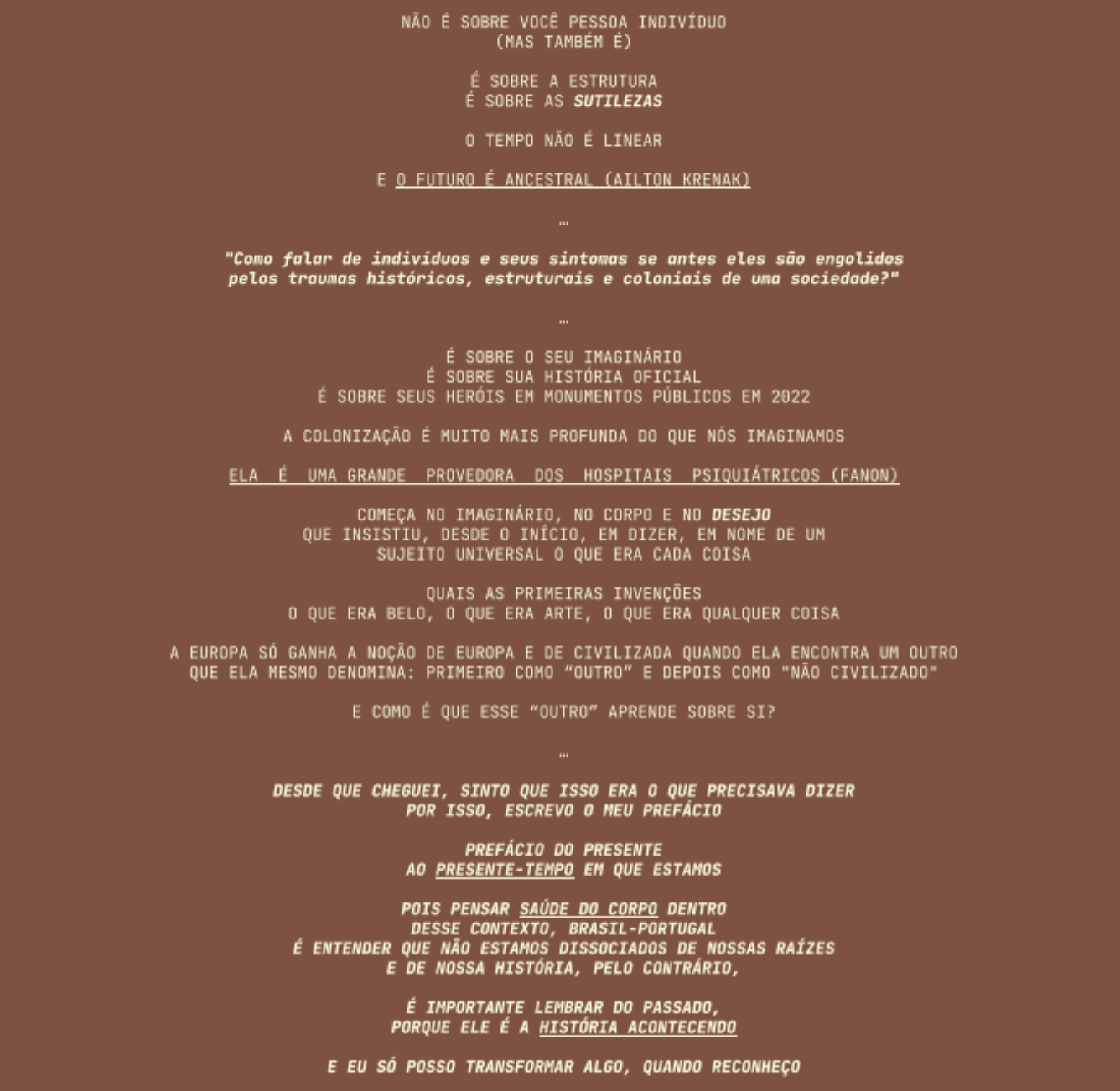
primeiros estudos:
